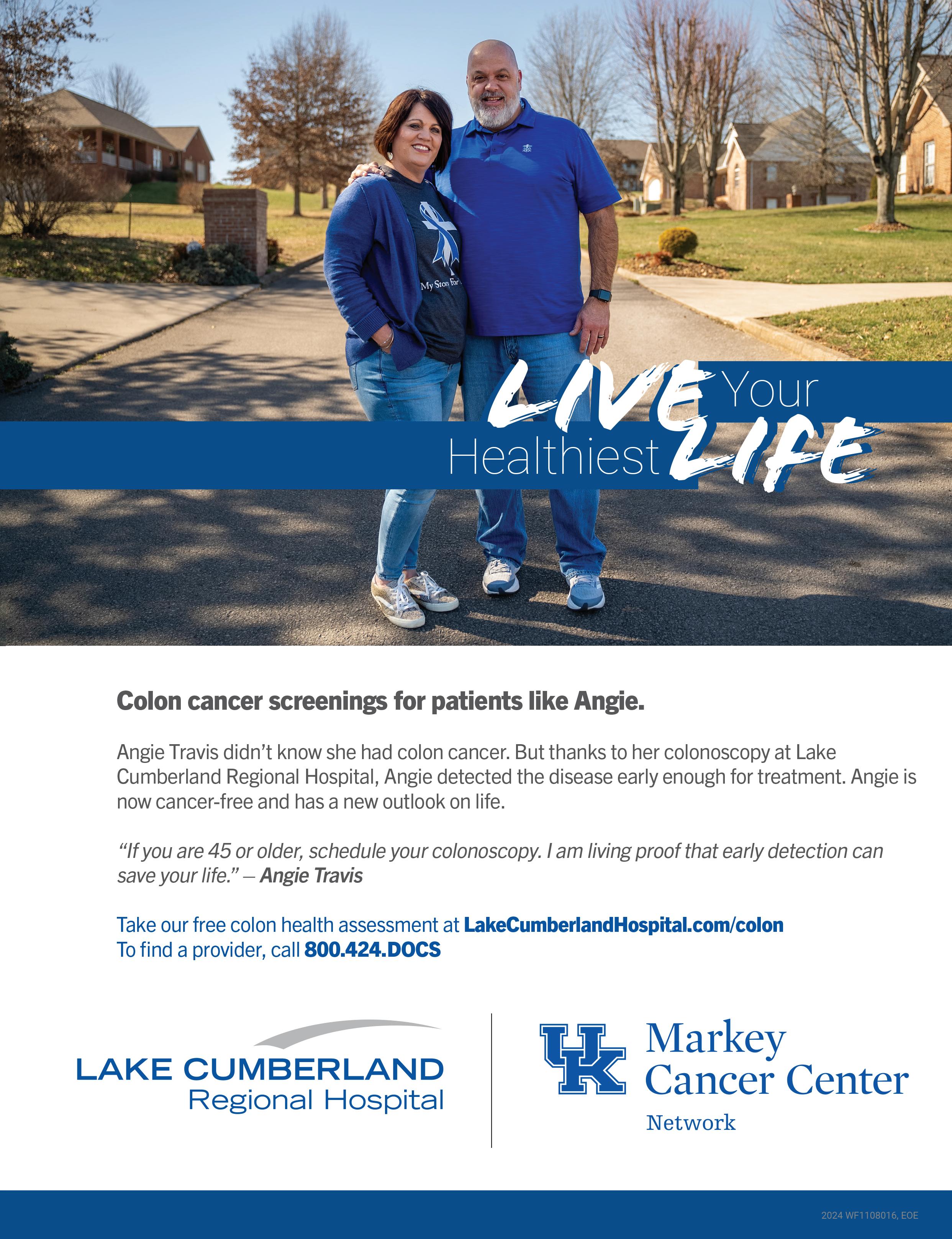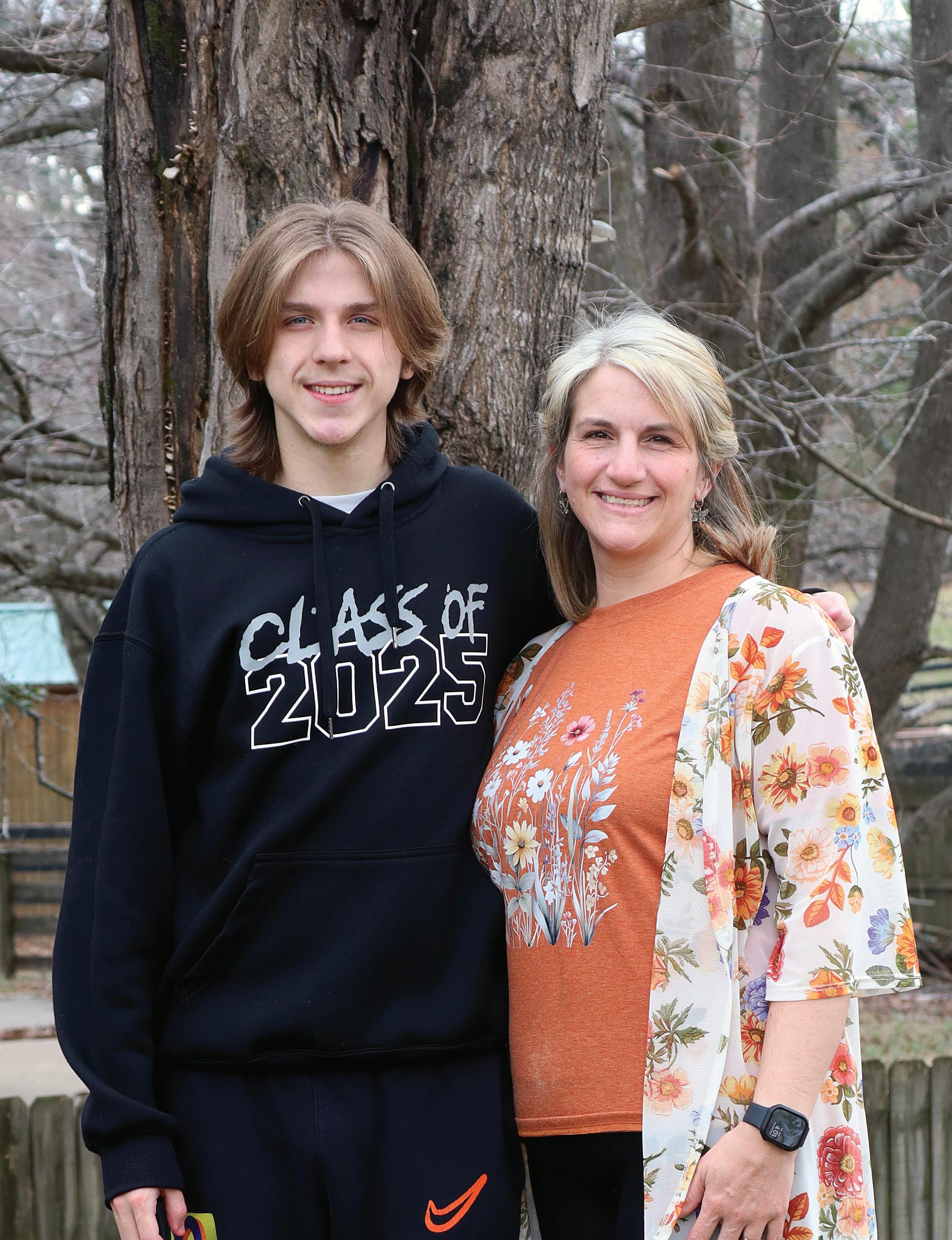

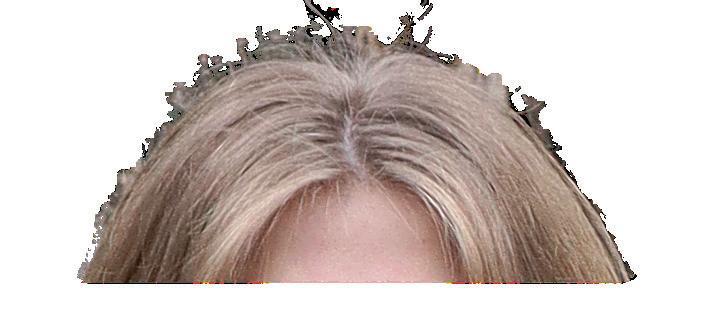






How very exciting it is to present the results of our very first poetry contest! It was such a joy to see all the entries pouring in from so many community members. When I chose the contest theme, “connections,” little did I realize that theme would be carried out through many of our articles this month.
From connections to our loved ones, to those we make with people who champion for us, or whom we meet by chance, the theme of connections is one I hope to carry with me all month. I feel like I made some beautiful and strong connections during interviews for this month’s stories. As you will read, there were reasons for tears to well up, and reasons for smiles at the opportunities for new beginnings.
April is National Volunteer Month and Volunteer Week is April 20-26. As I go about my daily activities this month, I plan on taking a moment each day to thank a volunteer. I invite you to do the same. Please feel welcomed to connect with us on Facebook, by joining our email list, or by dropping us a line at Info@LCCompass.com.
Happy Easter to you and yours,
— Lisa
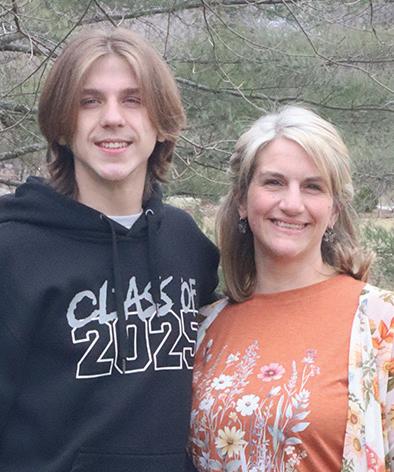

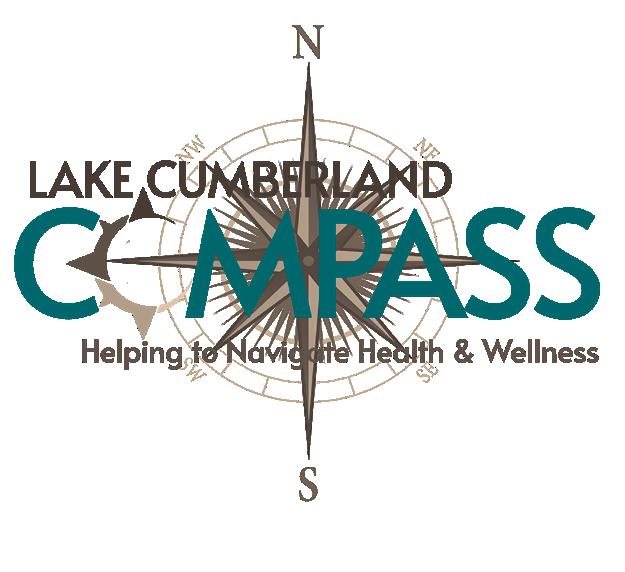
Sign up for our email list and never miss an issue or a deadline!
lp.constantcontactpages.com/sl/hXwoNKI
Volume 2, Issue 3 April 2025
–PUBLISHER / EDITOR / DESIGNER–Lisa Rowell
–ADVERTISING SALES–info@LCCompass.com
—CONTRIBUTORS—
•Rikiyah Pryor
•Ashley Hoseclaw
•McKayla Ginter
•Lake Cumberland Regional Hospital
•Lake Cumberland Dis. Health Dept. Lake Cumberland Compass is an independently published periodical in Somerset, Kentucky, by Compass Communications, LLC. Content is for entertainment purposes only. Print copies are distributed throughout Pulaski County. Digital flip books are available for free at LCCompass.com.
All rights reserved. No part of this publication may be reproduced or stored for retrieval by any means without written permission by the publisher. The publisher is not responsible for unsolicited materials and accepts no responsibility for the contents or accuracy of claims in any advertisement. Lake Cumberland Compass is not responsible or liable for any errors or omissions and reserves the right to refuse or reject any submitted content. The opinions of contributing writers do not necessarily reflect the opinions of the publisher.
LCCompass.com
Email: info@LCCompass.com
Facebook: @LCCompass
© 2025 Compass Communications, LLC
Format: Online ISSN 2998-3576
Format: Print ISSN 2998-3568
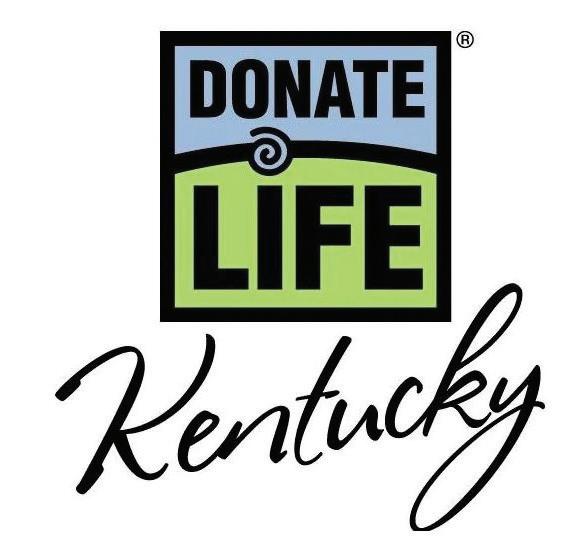
Read our winning entries and see what the judges had to say!

Dr. Ausaf Ahmed talks about PD, from diagnosis to treatments and self care. 18
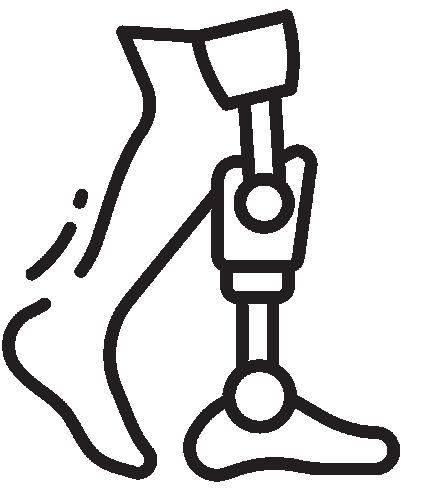
We talk with Shelley Snyder, executive director of Donate Life Kentucky, about the importance of registering to be an organ and tissue donor, and we also talk with the Goff family about their son Levi’s touching life-saving journey.
Jon Strunk talks openly about the loss of his right leg, how it has impacted his employment, and how he has learned to cope.
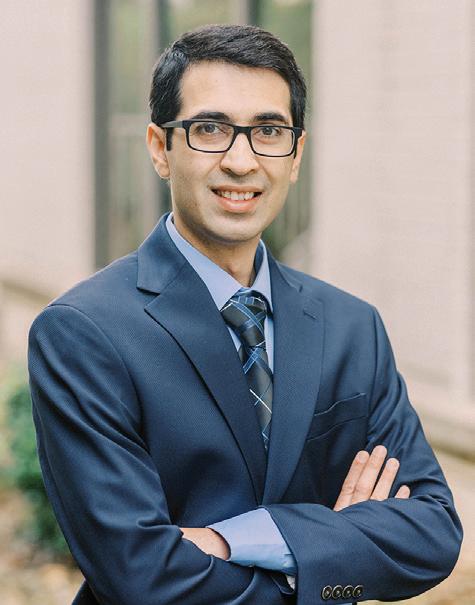
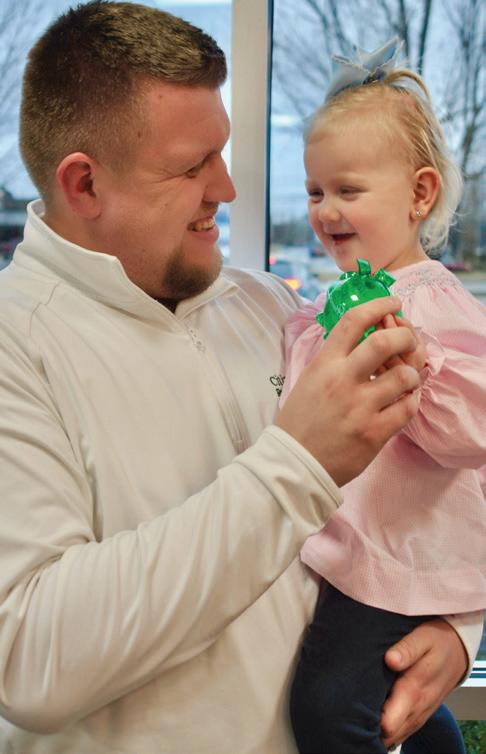

Rikiyah Pryor tells us how Trevor Ridner is already introducing his young daughter to the importance of financial literacy. 22
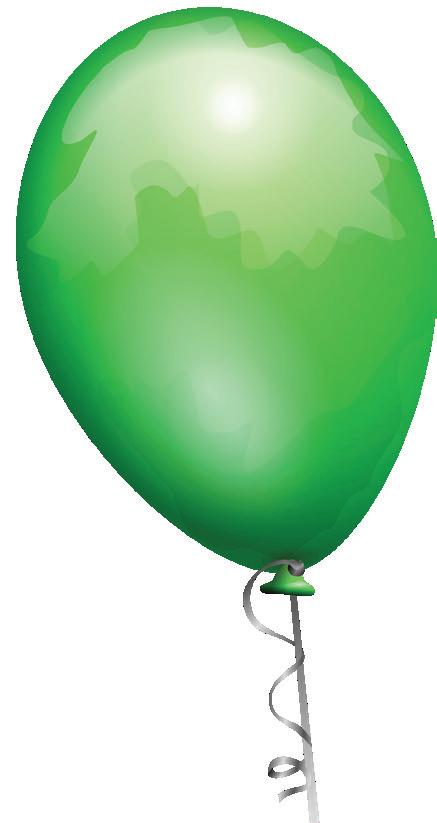
Story by Lisa Rowell
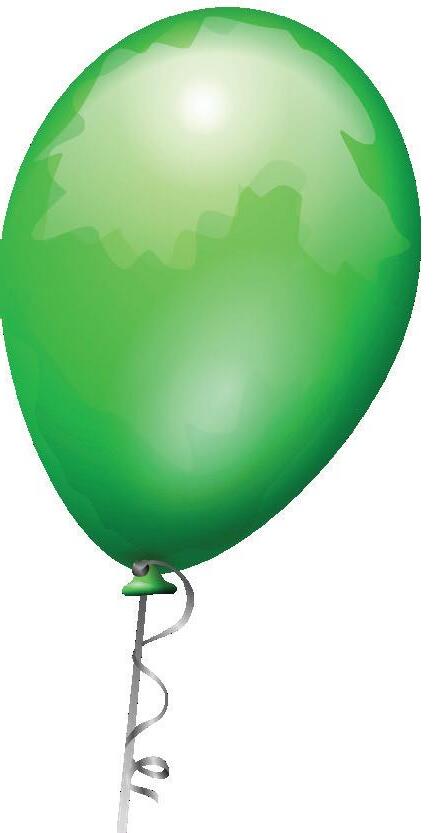
In 2007, I lost my firstborn son. He was 18 years old. March 21 of this year marked the day he’s been gone for as long as he was alive. When he got his driver’s license, Jake chose to become an organ donor. Because of that choice, many people were given a chance at a healthier and better life after his untimely death. As the mother of a donor child, it was an extreme honor for me to hear Levi Goff’s story and to share it in this space. This story not only celebrates the journey of Levi and his family for the beautiful gift he was given, but it also helps me honor the gifts my son gave through his final act of generosity. If you are not already registered as a donor, please consider doing so.
There are more than 104,000 people in the United States on the national donor transplant waiting list. Shelley Snyder, Executive Director of Donate Life Kentucky said, “That’s moms, dads, brothers, sisters, babies,” all waiting for a donor.
Shelley, whose office is located in Louisville, said 15 people die every day waiting for their gift of life. “I am happy to report that number has gone down over the years. We’re seeing an incredible increase in donation and transplantation.”
This staggering number includes people waiting for organs like kidneys, lungs, and pancreases.
Shelley, who joined Donate Life Kentucky as the executive director
in 2010, had previously worked as a family support liaison for an organ procurement agency. The organization works with every county in the state. She knows what these families are enduring as they are losing a loved one. She said they are either honoring that loved one’s decision to be a donor or are having to make that choice on their behalf.
“Families are going through the worst day of their lives,” she explained, “but they are having the generosity and humanity to think of others.”
In the work Shelley does in our Kentucky communities, she wants to convey the importance of being a
Levi and Laurie Goff celebrated Levi’s ten-year anniversary of his transplant on March 7, 2018. Laurie recalled the day: “We flew his donor mom, Tasha, and her sister and both their kids from Maine to celebrate with us. We invited friends and family. The hospital allowed us to use one of their conference rooms and provided food. This picture was taken after I spoke to everyone and told our story and of course broke down crying. He’s heard me tell the story so many times, but this was the first time I’d seen it bring him to tears. He doesn’t remember those scary moments and I am thankful he has only known the story and doesn’t have the memories of being so sick.” Submitted photo by Kelly Burton
donor. “We need everyone to register to simply say, ‘If I could, I would save a life.’ ” She emphasized that if everyone was registered as a donor, the waiting list would not be so long.
“When we’re out in the community, we just want to let them know what this mission means, to register as an organ donor, which is different than actually ever becoming an organ donor,” Shelley said.
“More and more people are saying yes to donation but still we want to continue to get that word out to save every life that could possibly be saved,” she said.
Shelley said registering brings hope to many, yet it’s quite a rare gift as it is not always medically possible to become a donor. There are many complex factors at work to make it happen, including a dedicated group of individuals from the organ procurement organization (OPO). In Kentucky, the Cincinnati area, and portions of West Virginia and southern Indiana, that organization is Network for Hope.
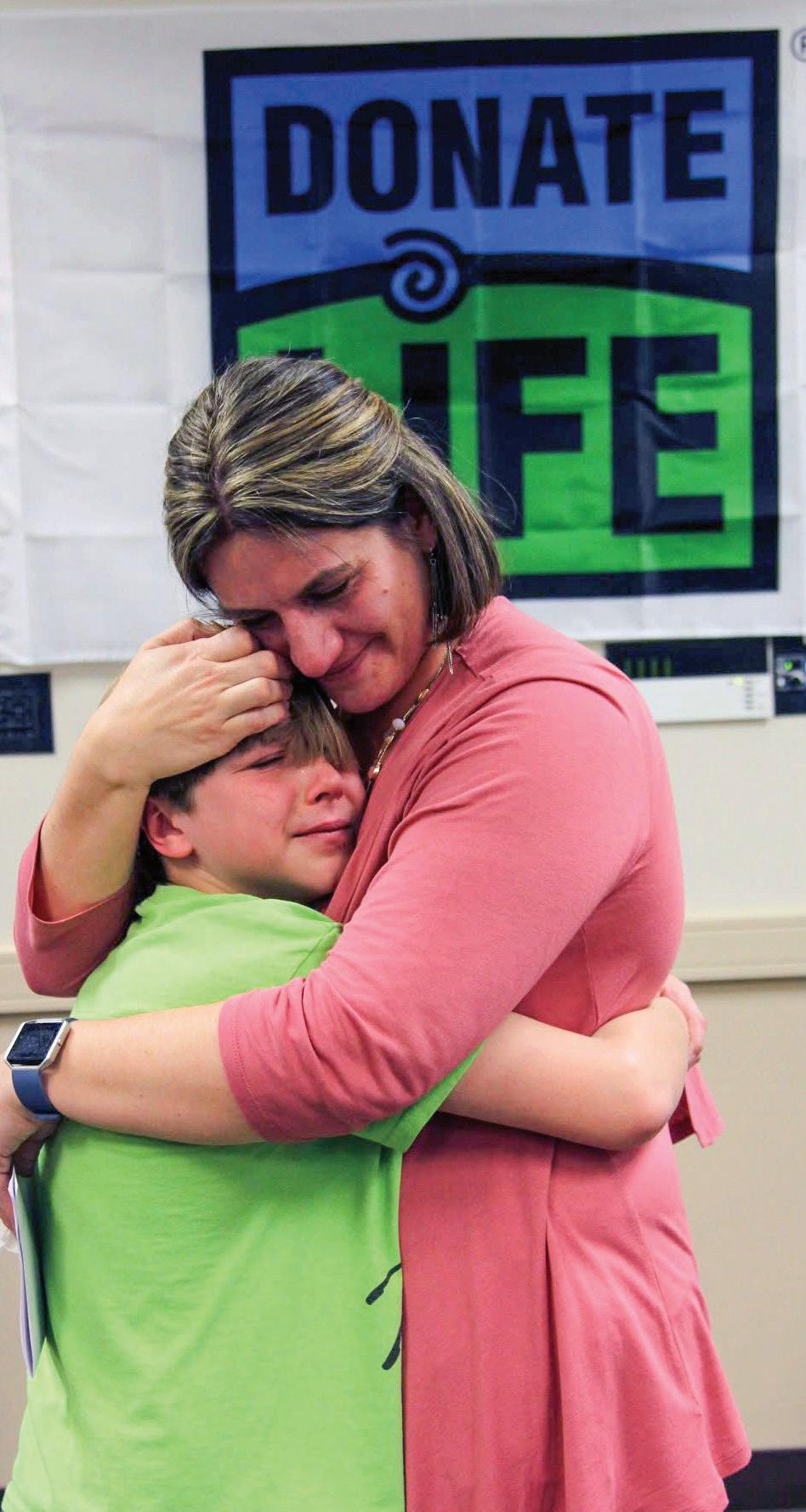
“It’s done with care and compassion,” Shelley said of the process.
Different teams may come from different areas. For Levi Goff, his gift of life came all the way from Maine.
Laurie Goff says anytime someone has a question about organ donation she tries to tell their family’s story. “This is what good can come out of such a tragic situation,” she said.
The family’s journey would be filled with as many bumpy roads as there would be blessings.
Levi, who is now a healthy 17-year-old senior at Pulaski County High School, is the fourth of five boys born to Robin and Laurie Goff. Laurie is a registered nurse at LCRH and Robin is an APRN with Cumberland Bariatric Institute.
Levi was just eight months old when he received his multiple organ transplant.
“He was born a little early but there were no complications,” Laurie recalled. “We went home after the usual hos pital stay.”
When Levi was almost two weeks old, things would change. Laurie said Levi was pale and his color was off. She and Robin knew something was not right so they took him to the emergency room.
Once stabilized, Levi was transfered to the Cincinnati Children’s Hospital where doctors found a blockage in Levi’s bowel. Laurie said the tiny infant was taken to surgery where it would be discovered that Levi had been born
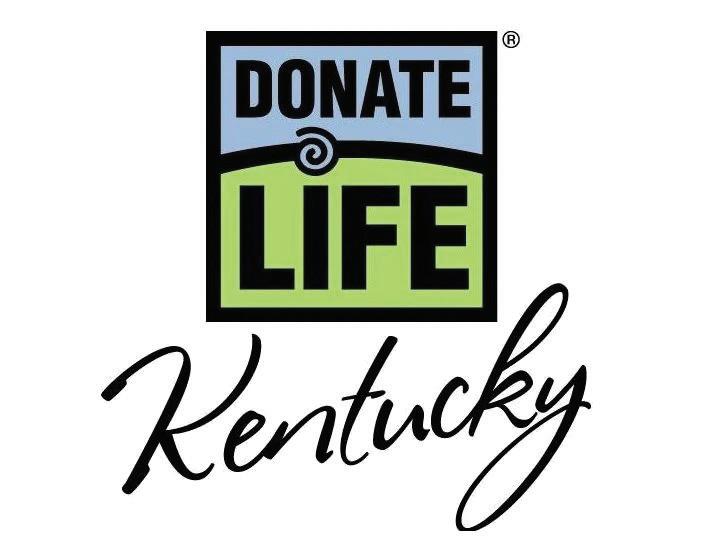
Headquartered in Louisville, and founded in 1992 by the circuit court clerks of Kentucky, Donate Life Kentucky is part of a nationwide effort to educate and encourage organ, eye, and tissue donation. They work closely with the Kentucky Transportation Cabinet Driver’s License offices and other community organizations. The goal is to increase public education about the lifesaving mission of donation and to grow the Kentucky Donor Registry.
by Lisa Rowell
April 2025
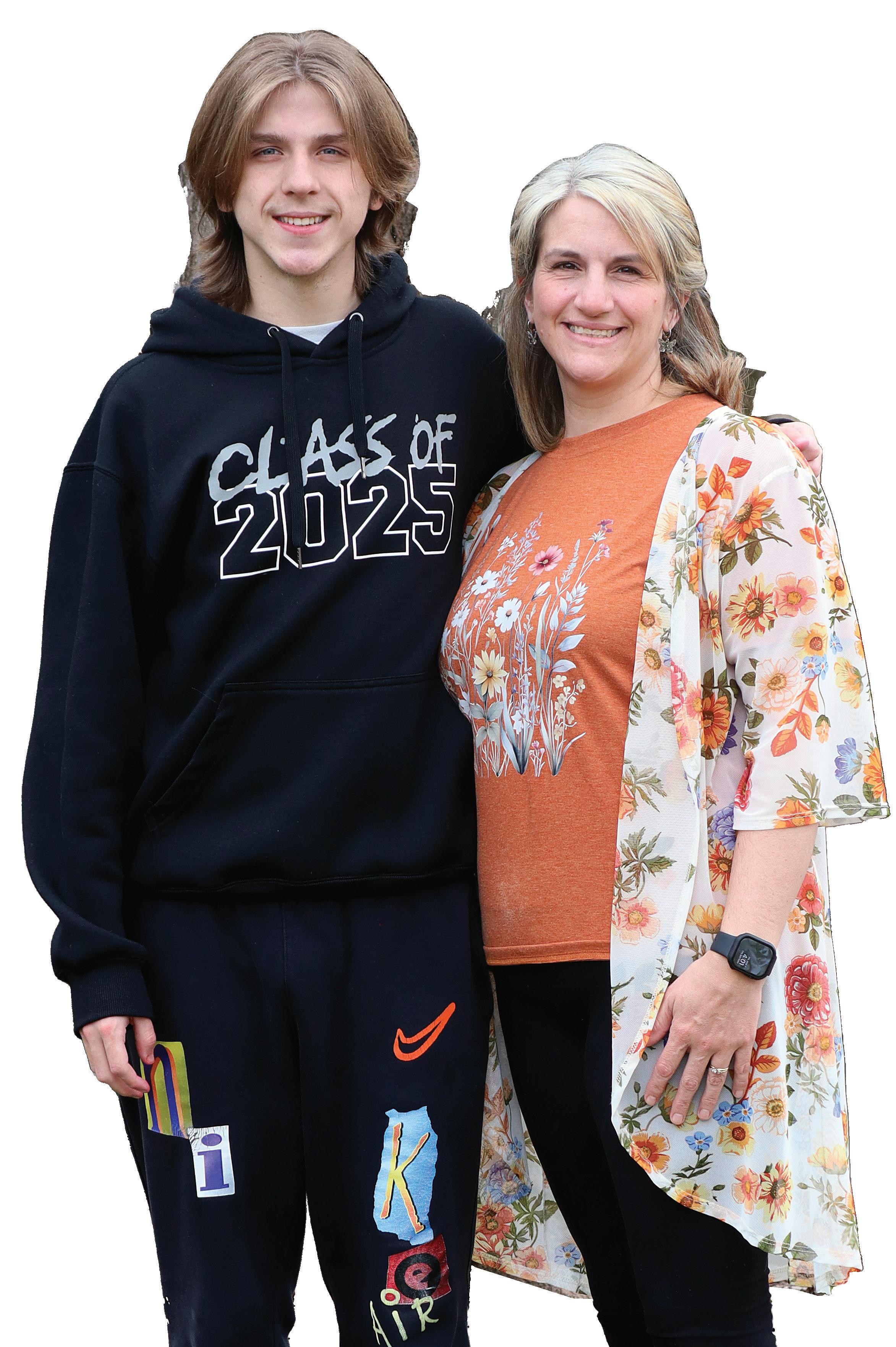
The organization’s full-time staff of seven is dedicated to providing public education and supporting donor families and transplant patients in financial need.
In 2024, nearly 300 organ donors in Kentucky helped save more than 600 lives. Thousands of tissue and cornea donors enhanced the quality of life for burn victims, cancer survivors, and those with vision loss.
Registering as an organ donor is simple. Sign up at the Driver’s License office when renewing your license or register online at RegisterMe. org. There’s no age limit and no health questions.
Kentucky residents can sign up through the Kentucky Donor Registry at donatelifeky. org where you can also read the many beautiful gift of life stories.
Discuss your decision with your family so they understand and can support your wishes. ♥
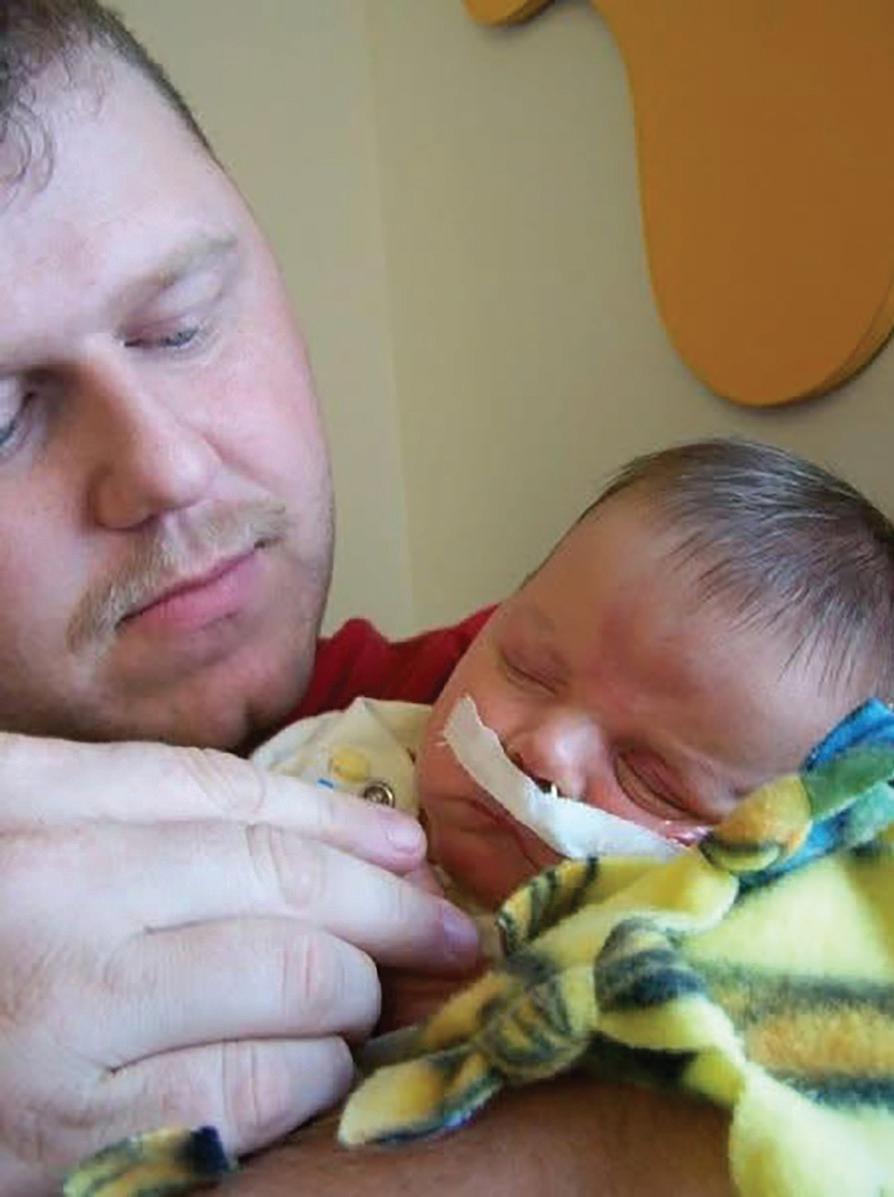
intestines became twisted (which is called a volvulus), resulting in a blockage of blood flow to the bowel.
Laurie said when the surgeon explained the severity of Levi’s condition, the family was told that it is not be possible to live without a bowel. Their baby’s surgical wound was intentionally left open and he was sent to the ICU where he would be observed overnight. The hope was that his intestines would regain their pink color.
“We prayed all night and cried all night,” Laurie said.
The news that followed in the morning was grim. Laurie said they were given the choice to let their baby pass away while sedated or try a small bowel transplant. Levi was only two weeks old and weighed six pounds. Laurie said the doctors told her he needed to be a year old and weigh at least 20 pounds to be considered for the surgery which would require a donor.
“In our minds, that was the only option. If there’s a hope, a chance… I could not not give him a chance,” Laurie said.
Levi was taken back into surgery where all but three centimeters of his
“ In our minds, that was the only option. If there’s a hope, a chance… I could not not give him a chance. ”
—Laurie Goff
small intestine would be removed. Only ten percent of his large intestine would remain. He received a permanent IV and a feeding tube to sustain him until he was healthy enough to have the transplant. Laurie said she was told there was risk of infection that went along with having the IV.
Levi has no recollection of anything he endured as a baby.
“He was such a happy baby, always,” Laurie said. “Even with tubes coming out of him.”
“Luckily, Cincinnati has a transplant center that does small bowel transplants,” Laurie said.
While the Goffs waited for Levi to be healthy enough to receive a transplant, there would be complications including life threatening infections, and more hospitalizations.
“We wouldn’t stay home for more than a week or two,” Laurie said. She had a to-go bag packed and ready at all times. “As soon as you felt him feeling warm, you’re like, ‘Oh, here we go again.’ ”
Laurie said they learned to guard that IV line with their lives. “I was constantly afraid he was going to pull it out,” she said. They also had three running toddlers in their home at the time.
Levi underwent constant evaluations, testing, labs, and blood transfusions. Laurie said the long term effects of the feeding tube also damaged Levi’s liver which
heightened the risk for him to develop varices (enlarged veins in the esophagus).
Levi would be put on the organ donation waiting list for a small bowel and a liver.
Laurie said they were thankful to be home during Christmastime.
That winter, Levi was admitted to the hospital in Cincinnati to evaluate what turned out to be an ulcer.
“While we were there, they decided to give him a unit or two of blood,” Laurie recalled.
Laurie said they stayed at the hospital overnight and there was a huge snowstorm that rolled through the region.
“While we were there getting blood, we were told they found organs,” Laurie said.
Had they been home, Laurie said the snowstorm may have kept them from being able to get to Cincinnati.
“We were right where we needed to be,” she said. “It also helped that he was already admitted. It was a blessing that we were there at that moment.”
That moment would feel bittersweet. While Laurie’s child had a chance for life, she realized another child had just lost theirs.
“It’s very hard to describe,” Laurie said about how she felt. “You feel guilty for being happy.”
Shelley Snyder tried to put it into perspective. “It’s not about wanting the demise of someone else,” she said. “It’s complex for those recipients. It’s not an easy journey to need a transplant.”
She said they try to offer words of comfort to the recipients. “The donor families want you to live, that’s why they gave you this gift.” It’s natural to feel guilt or regret but the donor families want the best for you.
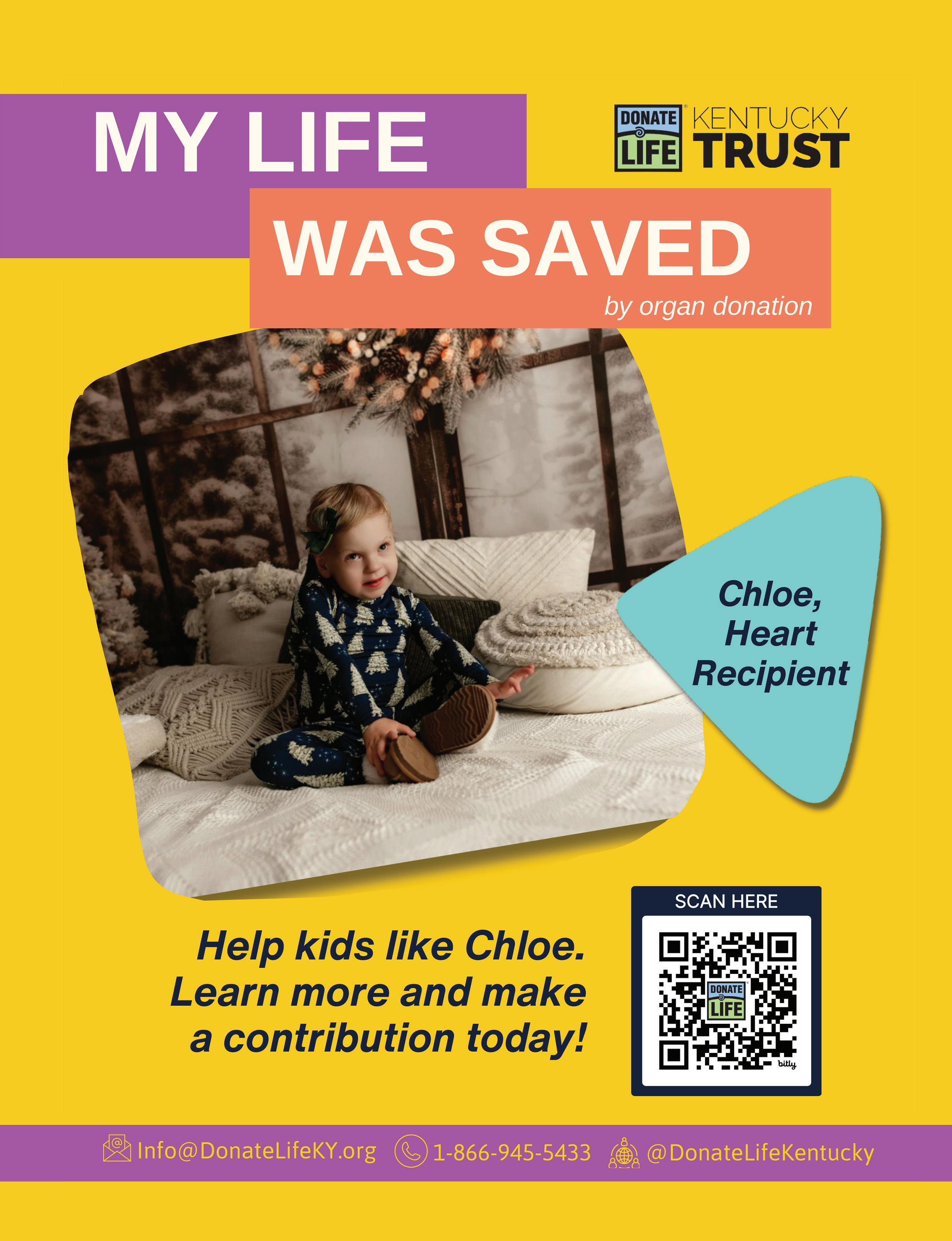
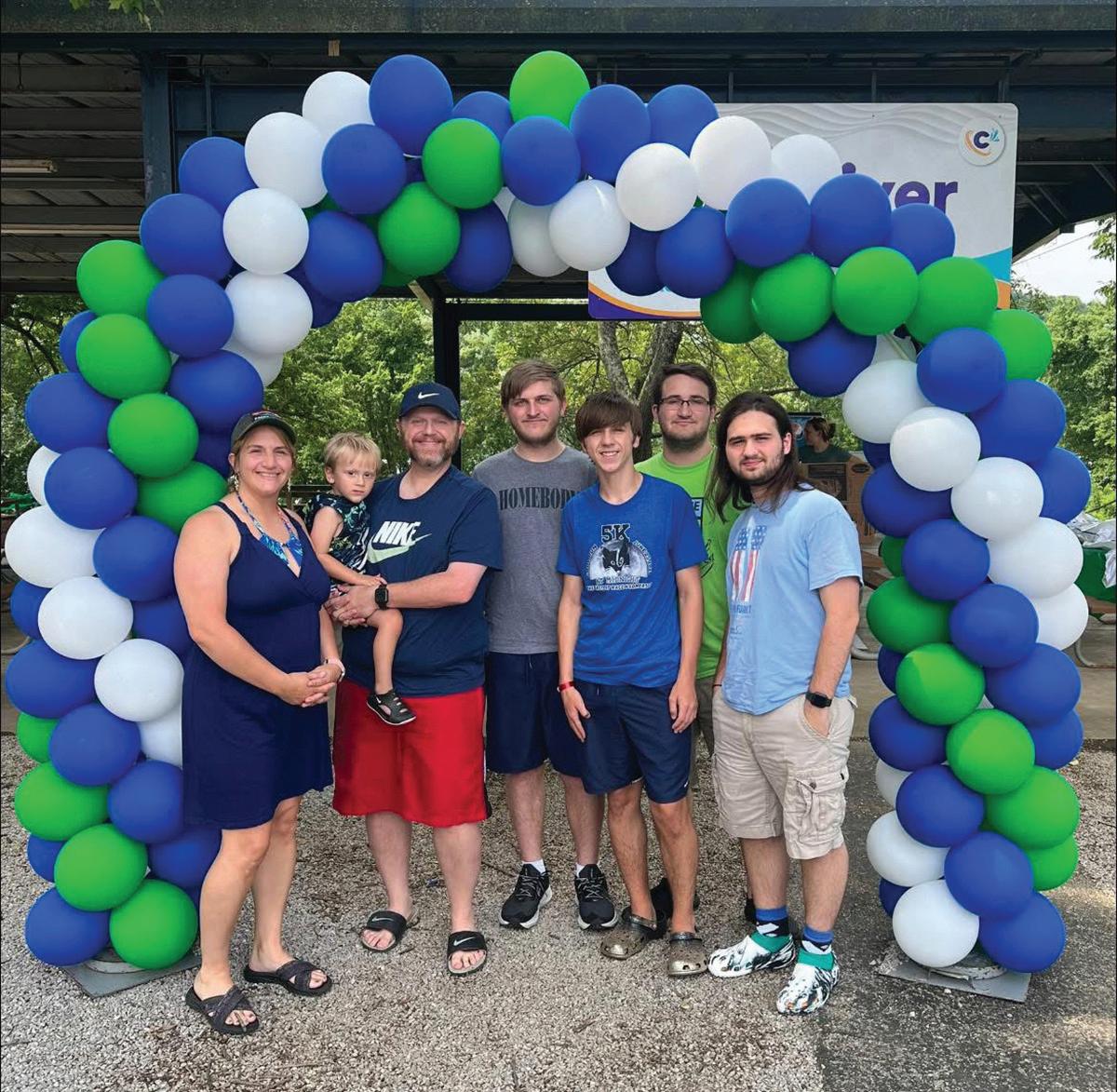
The Goff family at Coney Island outside of Cincinnati in July, 2022. Cincinnati Children’s Hospital Liver/Intestinal transplant team hosts a picnic every summer for recipients and kids on the waiting list and their families. Laurie said, “We’ve been almost every year.” Left to right, Laurie, Wiley, Robin, Toby, Levi, Brandon, and Jacob. Submitted photo
Coming full circle, as a donor mom, I agree with what Shelly said. I did not think twice about my son’s decision to be a donor. Jake was generous to a fault. In the midst of the shock and emotional turmoil of losing him, there was also a deep understanding that nothing would alter the outcome. Nothing would bring him back.
It was a comfort to know that my son’s last act of generosity would ultimately help sixteen people live better lives.
I would not have thought about his choice to be a donor in any other way, nor would I have wanted those recipients to feel anything less than blessed that someone who agreed to be a donor ultimately matched their needs.
“The wheels started turning and we started getting him prepped for surgery,” Laurie said of Levi, who by this time was eight months old.
“It was a very long surgery,” Laurie said. Levi had an entire team of medical professionals overseeing every step. Laurie said she could not say enough kind things about the care Levi received in Cincinnati.
Ultimately, Levi would receive a liver, an intestine, and a pancreas from a five-week-old donor. He would lose his spleen.
Levi is on an immunosuppressive drug, Prograf, to prevent organ rejection. He also takes an antibiotic to prevent infections since he doesn’t have a spleen. He also takes a medication to help with his digestion.
“By the time he’s in kindergarten,” Laurie says of Levi, “he’s a normal kid.” She said she was worried about him going to school because of the anti rejection medication. “He has a plan at school. They’re supposed to let us know if there’s people that are sick in his class. He’s allowed to carry water with him to make sure he doesn’t get dehydrated.”
“We have to follow up once a year to make sure everything is working good,” she said.
“He does everything his brothers have done,” Laurie said. Levi will be graduating from high school this year. He was a life guard at SomerSplash Water Park last summer. As soon as Levi was old enough, he became a blood donor for the Kentucky Blood Center so he could help others.
Laurie said she feels this journey with Levi has led her to becoming a better nurse and enhanced her empathy for what patients are going through.
“Levi’s donor’s mom is from Maine and we brought her down for his tenth transplant anniversary,” Laurie said. They were not aware Levi’s donation had come from Maine nor did they connect to the donor family until serendipity would reveal that years after the surgery.
Laurie said about two years after the surgery, she decided to write to the donor family, following the facility’s strict protocol. The donor family had the option to receive the letter or not. “I never heard anything back so I just assumed that they didn’t want to respond,” Laurie said.
When Levi was six or seven, the Goffs took a family trip. The initial plan was to travel out west. With gas prices being so high, Laurie said they scrapped the idea and chose to visit the Northeast instead. During their trip, they were on their way to Maine from Niagara Falls. They had no set itinerary and just booked rooms as
they needed them. Heading to the motel for the night, Laurie said she received a message. A former coworker shared a Facebook post from a woman who was looking for her daughter’s organ recipient.
Laurie said the woman’s post stated she had received a letter from her daughter’s recipient family but had lost it. She was trying to find a way to connect with them. The details of the post were too uncanny for it to be anyone other than the mother of Levi’s donor.
At this point, Laurie had no clue Levi’s donor had come from Maine. She was able to connect with the woman and it would turn out that she lived 30 minutes from the very motel the Goffs were staying at that very night!
Shelley said Donate Life Kentucky focuses on three pillars — public education, fund raising, and donor family celebrations.
Shelley said almost 70 percent of Kentuckians are registered. In Pulaski County, that number is 63.4 percent.
“Anyone can be a donor, regardless of age, medical history, or background. We encourage everyone to take a moment to register, have conversations with their families, and help spread awareness. One donor can save up to eight lives and enhance the lives of more than 75 people.” She also said healthy individuals can be living donors for a kidney or a portion of their liver.
Shelley said organ donation also provides healing and comfort to donor families. “Knowing their loved one’s legacy lives on can bring immense peace during difficult times.”
Donate Life Kentucky has a fund to help support families with travel expenses including gas, hotels, medication, and other expenses to help meet the needs of donor families.
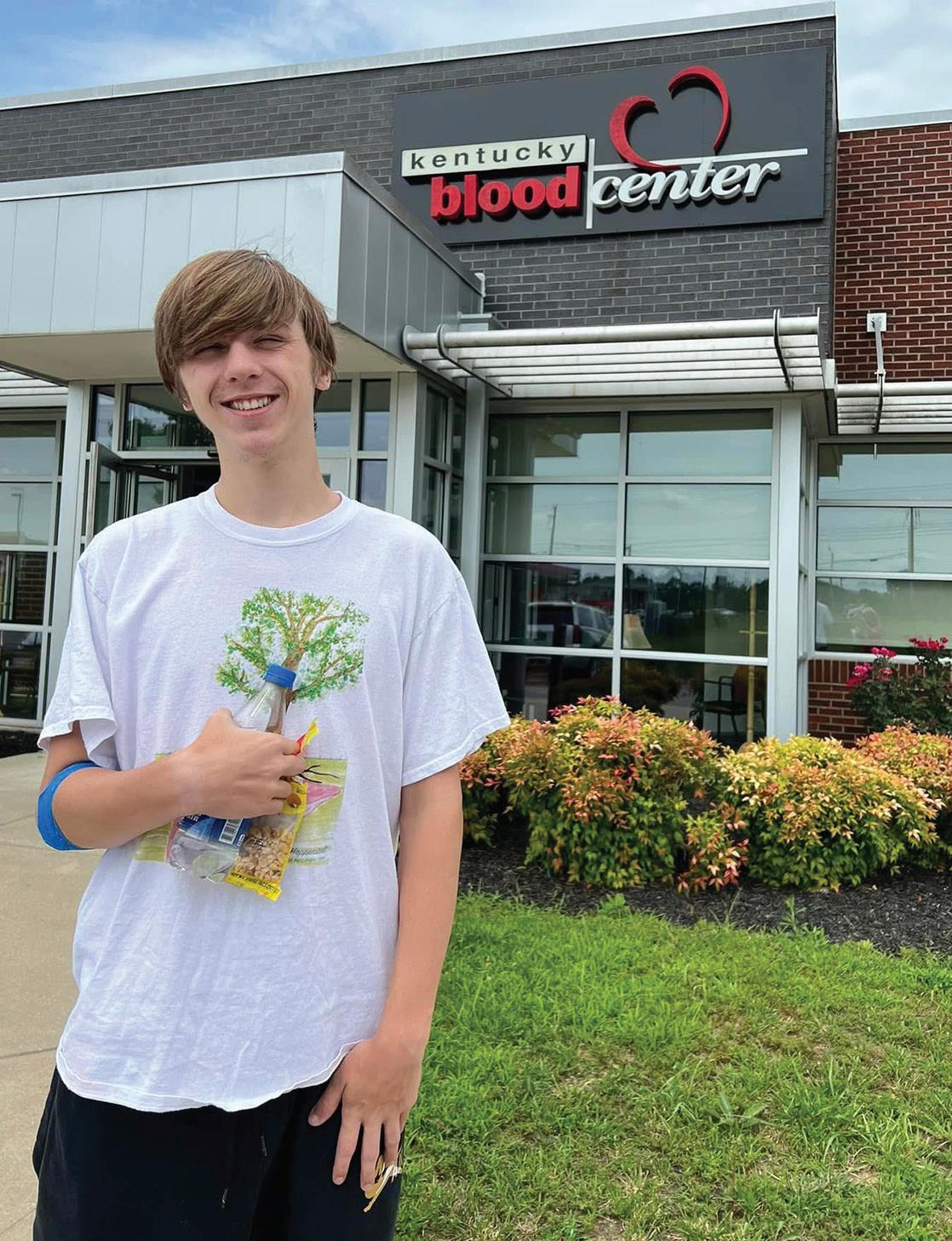
Levi Goff chose to become a blood donor as soon as he was eligible in order to help others. Submitted photo.
“ Anyone can be a donor, regardless of age, medical
”
—Shelley
Snyder
The non-profit organization has several fund raising activities throughout the year including events at Churchill Downs before the Derby, awareness walks, summer and fall raffles, and third party events. If your organization is interested in helping with a fund raiser or you would like to make a monetary donation, visit donatelifeky.org/ financial-contributions/
You may contact Shelley via email: ssnyder@donatelifeky.org, or call her office: 866-945-5433.
Through the organization’s patient and family support services, they want to help patients get back to life – protecting it and celebrating it. n



To honor National Poetry Month this April, Lake Cumberland Compass held a poetry contest with “connections” as the theme. There were two categories:
1) Adult, 18 and older 2) Student, 18 and younger
We are pleased to present our winning entries in each category. Congratulations to Micah Abshear
(category 1) and Aaron Allen (category 2)! Each has received a $50 gift card.
Thank you to everyone who submitted entries for the contest. It was so much fun and we’re looking forward to having another contest.
Our informal panel of nine judges included current and former teachers, editors, writers, and
By Micah Abshear, Somerset
When I see you smile, I forget we aren’t stars. For a moment, we sit in a bed of cosmos, holding each other in a radiant brilliance, a glow of alabaster hues.
I forget we aren’t celestial bodies, cursed to float adrift in longing, spinning together for endless eons, always bathing in a deep warmth—
a fire that could set ablaze even the coldest of hearts.
I forget that grabbing your hand would split the universe itself asunder, a quasar of love outshining the heavens, brighter than the cosmos’ grandest light.
A moment of bliss never before seen, held still in a macrocosm unknown.
I live and die in an instant, reborn anew in the luminescence of that bewitching smile.
The beautiful joy radiating from you melts the pain of my past, dredging me from sorrow’s depths.
Love, in words unknown to Shakespeare, secrets hidden from Dickinson or Poe, a feeling too vast to write—
for even language cannot grasp it.
When I see you smile, I see infinity in a moment. I see you, perfect. I love you.
lovers of prose. The poems were presented to the judges with only the knowledge of which category each was in. The judges expressed how much they enjoyed taking part in the contest and reading the entries. Their incredibly thoughtful and kind comments explaining why they chose their favorites are listed.
“What a romantic, dreamy gesture toward someone special! The feelings were deep, and I felt them all.”
“It was light, lovely, and filled with imagery. I loved how the description of love progressed so much as the poem continued — especially the third to last stanza describing famous authors and their inability to put into words the love the speaker has for someone. I appreciate a love that sometimes takes us away from reality into a better place.”
“The profound use of figurative language paints a beautiful image that gives almost a sense of peace that can be stretched across a celestial landscape.”
“The word play evoked how love brightens up every aspect of life.”
“The language is musical when read aloud. The act of reading it evokes the feelings it describes. Is it over the top? Sure! Love (infatuation?) often is.”
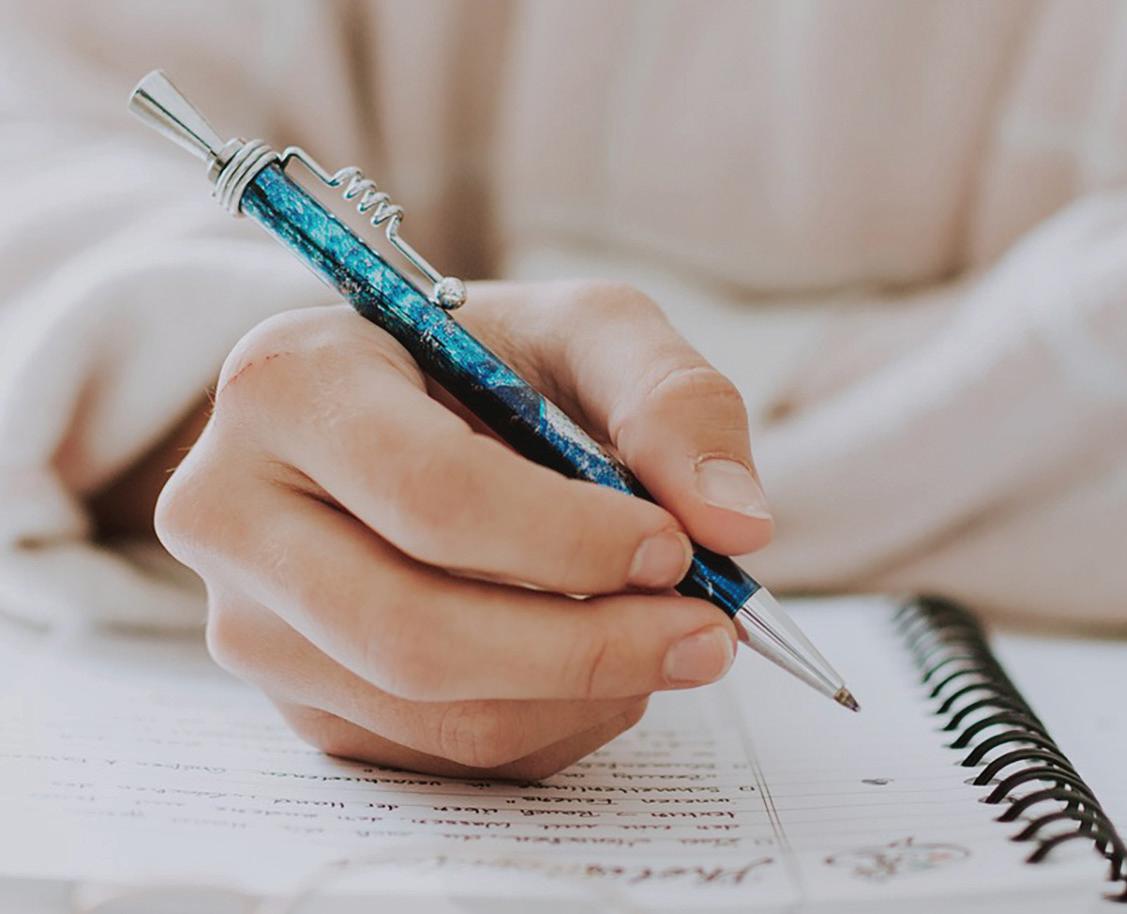
By Aaron Allen, Southwestern High School
The steady hand, a guiding light, Through childhood’s day and darkest night. A gentle strength, a patient soul, To make me whole, to make me whole.
He built me strong, he built me tall, And caught me gently when I’d fall. He taught me lessons, big and small, And answered every earnest call.
He showed me right, he showed wrong, And filled my life with happy song. He nurtured dreams within my breast, And helped me put them to the test.
For all you gave, and all you do, My heart is overflowing true. A debt of gratitude I owe, More than these simple words can show.
So thank you, Father, dear and kind, For all the love that I can find. For raising me with gentle grace, You hold a sacred, special place.
“The poet best carried out the theme of the contest: Connections. Having a relationship — a connection — with one’s father is also life changing. Mothers are often saluted for what we give our kids, but a father’s role has a lasting influence as well.” This judge felt the poem inspired the reader to nurture our connections and relationships with other people.
“It is quite sweet and though I am an English major who should promote freedom, I love a good structured poem.”
“This spoke to me in the sense of ‘connections’ from the writer. This poem takes you there, in real time as you’re reading.”
“I chose this entry because of the heartfelt message embedded throughout the poem. There was an undeniable sincerity in the selection of words. Great work!”
“Great care was taken to rhyme — though it doesn’t come across forced. It shows a strong bond and the strong character of a young poet who has a close and grateful relationship with his or her Dad.”
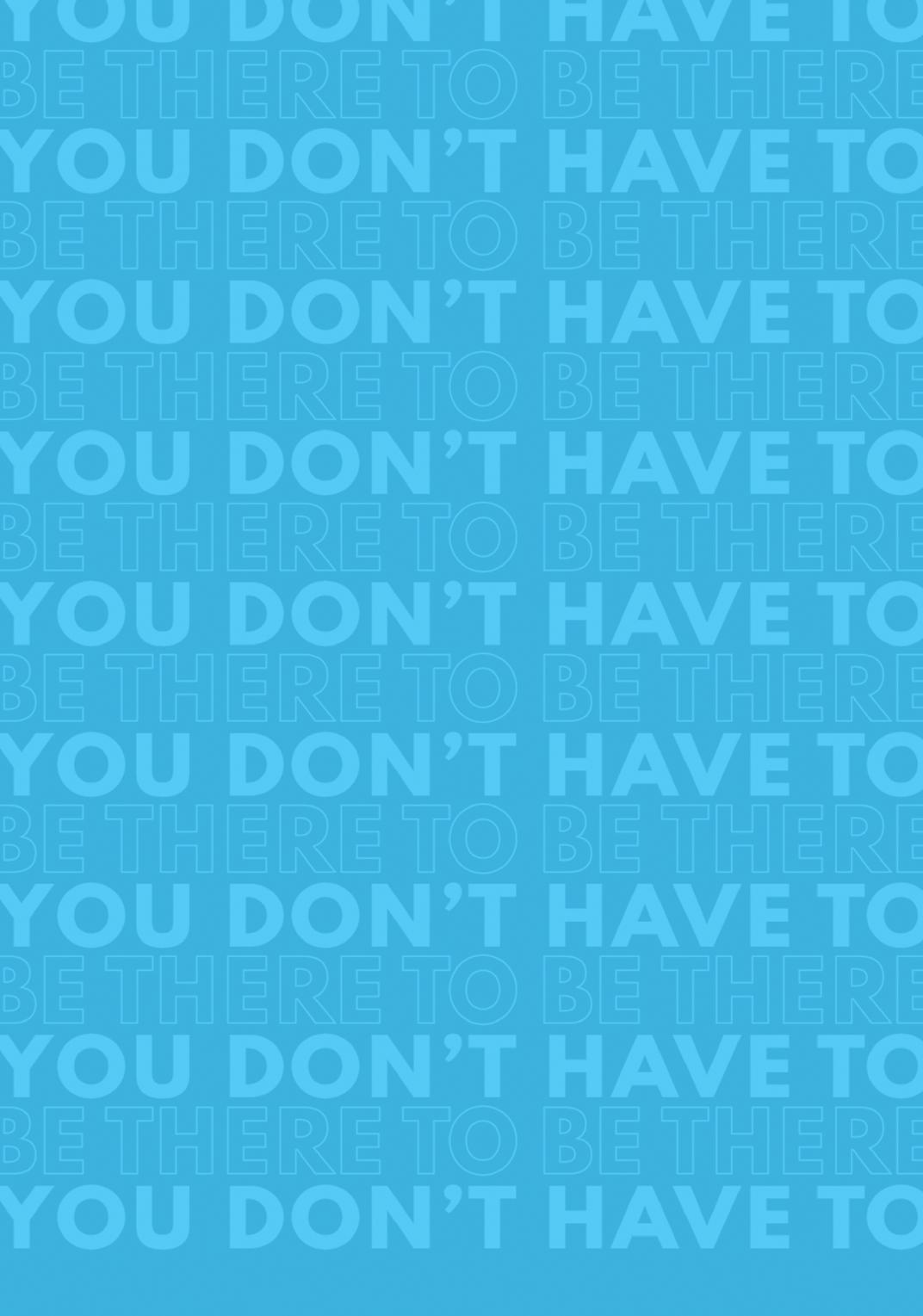
You good?
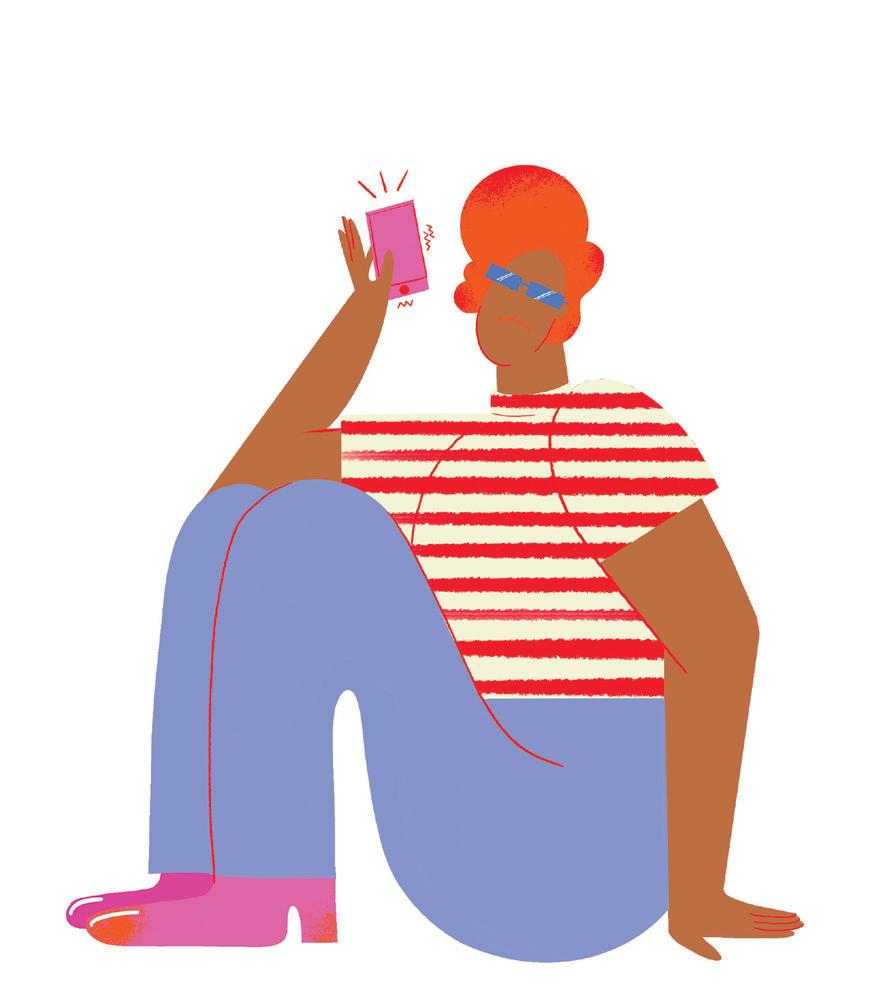
Reach out to a friend about their mental health. Find more ways to help at SeizeTheAwkward.org
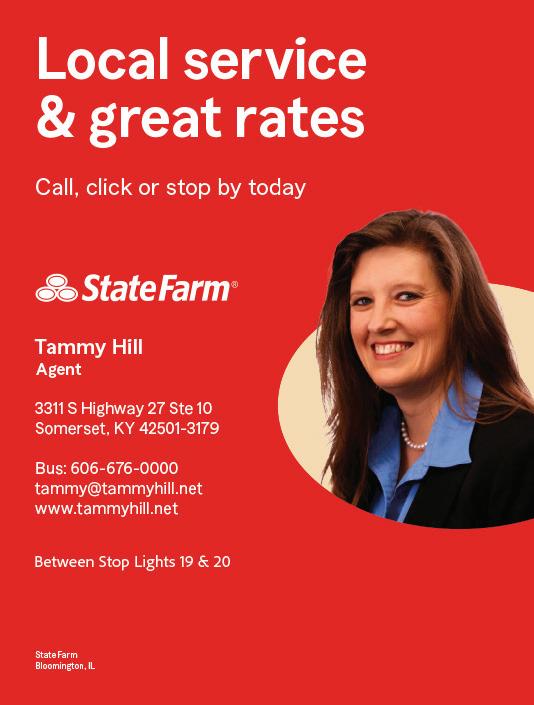
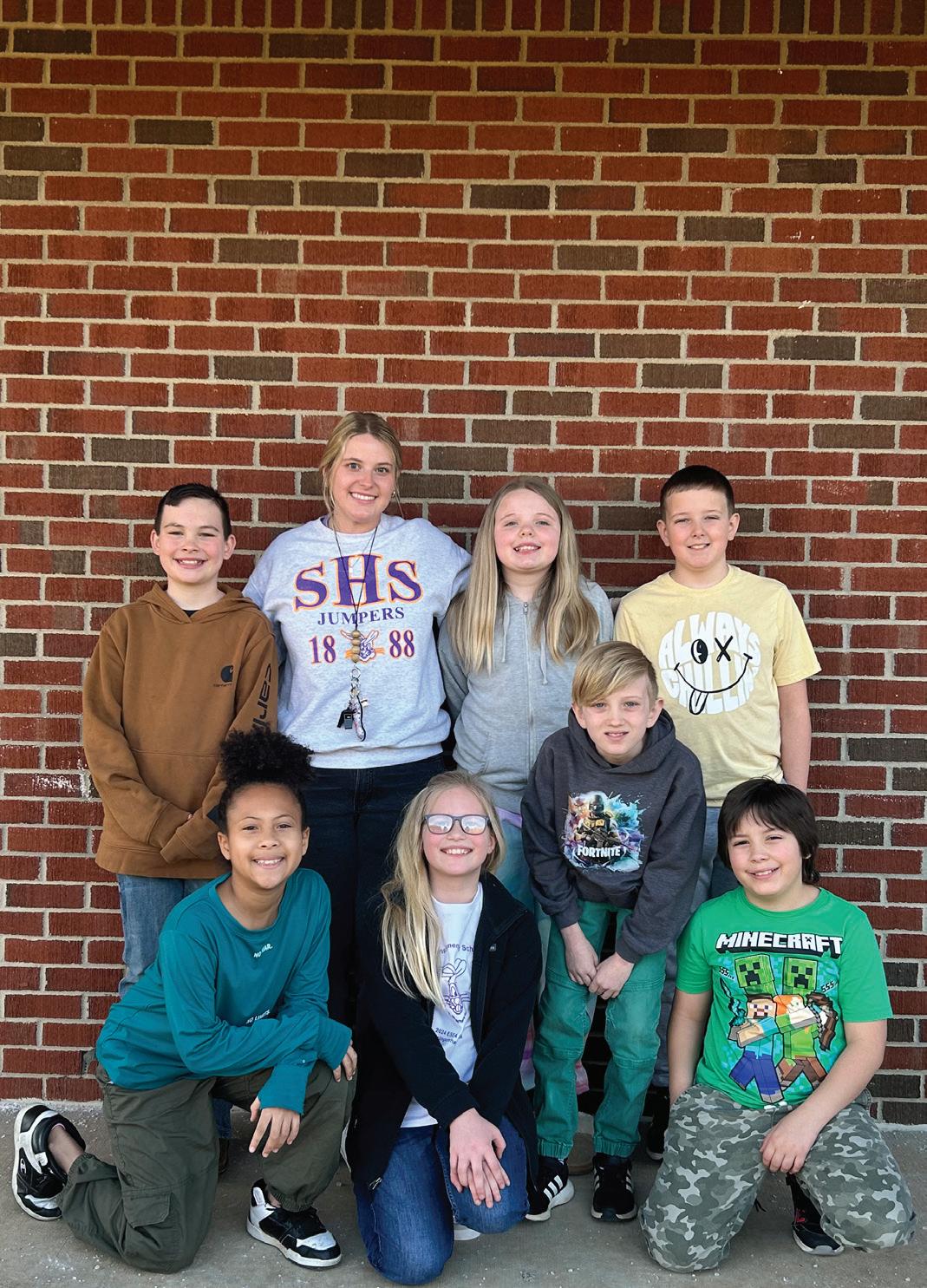
Hopkins Elementary fourth grade students submitting poems for our poetry contest include (top row, left to right): Jack Burnett, teacher Ms. Jessie Wilson, Bristol Acton, Matthew Stockton; (bottom row, left to right): Miya Pippen, Sailor Parmley, Nash Trammell, and Jaxon Benien. Submitted photo
By Sailor Parmley
art will never be right and the lines will never be tight but that will never matter art will never be perfect it’s like walking the journey of life you will make mistakes and lines you can’t erase art is not a test have fun with your art, it won’t be the best.
By Jack Burnett
The woods are a silent, boring place to people who do not listen. But to the ear of the people that listen, they hear herds of deer, squirrels jumping in the air like a ballerina, trees waving back and forth, birds singing songs like they are Taylor Swift. Night sky comes down no need to think you are by yourself there are more animals than you can count.
By Bristol Acton
my mother had made up her mind, having one child would be fine but then Asia cried asking my mother for another sister then along I came my sister was happy her prayer came true ever since then we’ve been connected like the ecosystem she says I’m a ray of sunshine she says I shine like a diamond
By Nash Trammell
When I am down there is nothing but darkness, but when my little kitty comes around everything starts to change.
When the soft calming fur rubs against my skin, the whole world starts to change again and again and when the world changes everything isn’t the same.
I thank God for my little kitty as if there is calmness in the breeze and if it wasn’t for my little kitty I wouldn’t be me.
Everyday, everynight, my little kitty takes my fright and after all my little kitty did my heart is sealed again after my little kitty makes me grin.
By Miya Pippen
For so long, who’s taken care of me? That is my family. And now, almost a preteen, they’ve taught me loyalty. My family is there for me, so I’ll do the same . I hope when I have children they treat me the same. Loving them like my family loves me will be my destiny. Years from now I’ll look back and hold those memories.
By Matthew Stockton
By your side
Either way they are there for you
Stand up for you
To protect you Forever remember you Remain with you Invincible friendship
Enjoying every moment with you Never going to let you down Dedicated to help you
By Jaxon Benien
Back and forth through the pages. Out and in books pull you back.
Octopi in the ocean, birds soaring through the air, Kings in the castle with the queens and their children. Snakes in the jungle and monkeys in the trees.
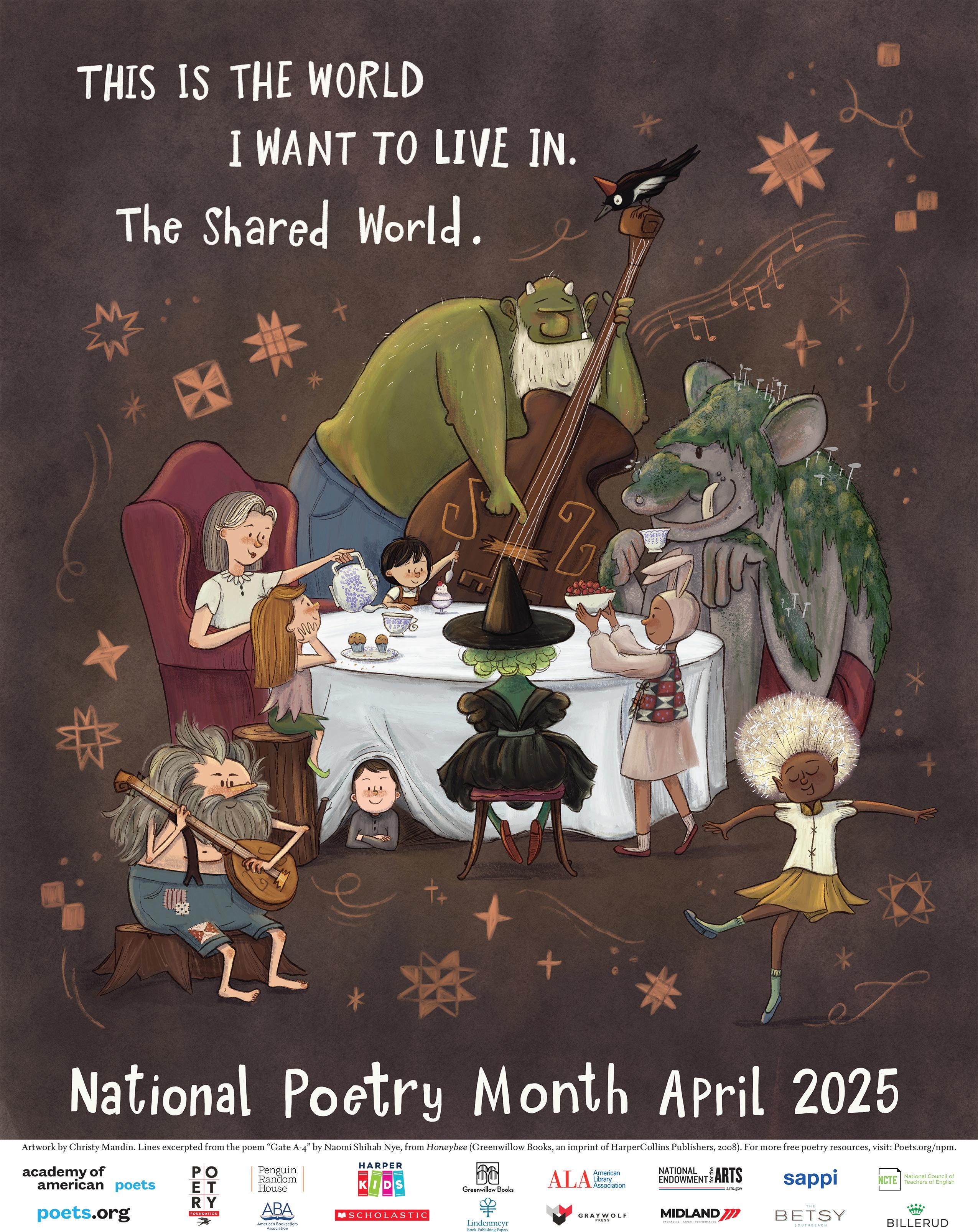
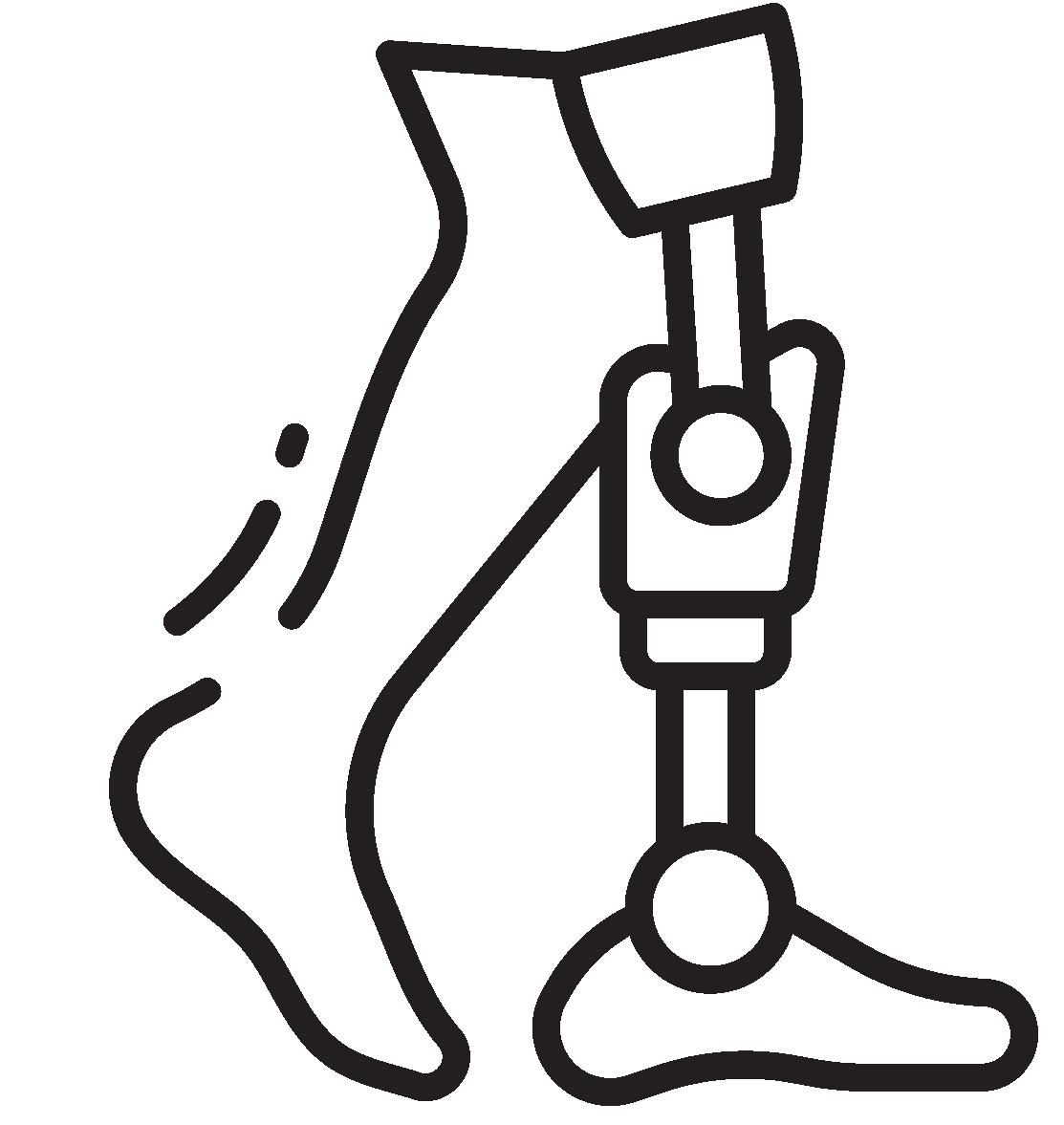
When Jon Strunk walked into the restaurant that Saturday morning — a place we’d meet to talk about his limb loss — little did I know that I would be meeting someone I would want to call friend and that our meeting would entail so much more than talking about the loss of a physical part of oneself.
One breakfast bar, a few tears, and several carafes of coffee later, what Jon would share with me is a tale of raw grit and survival.
April is National Limb Loss and Limb Difference Awareness month. While limb loss is self-explanatory, “limb difference” refers to an arm or
Story and photo by Lisa Rowell
leg that is not shaped or developed in the typical way. Present at birth or acquired through factors such as an injury, limb difference can be the presence of an arm or leg that is different in length, shape, or function compared to a “normal” limb.
The Amputee Coalition estimates that 2.3 million people in the United States live with limb loss and 3.4 million live with limb difference.
Each year, about 150,000 people undergo a lower extremity amputation in the United States. The most common causes leading to amputation are diabetes, peripheral vascular disease, neuropathy, and trauma.
Sarah, Jon’s wife of nine years, would become his rock, along with the comfort of the couple’s two dogs,
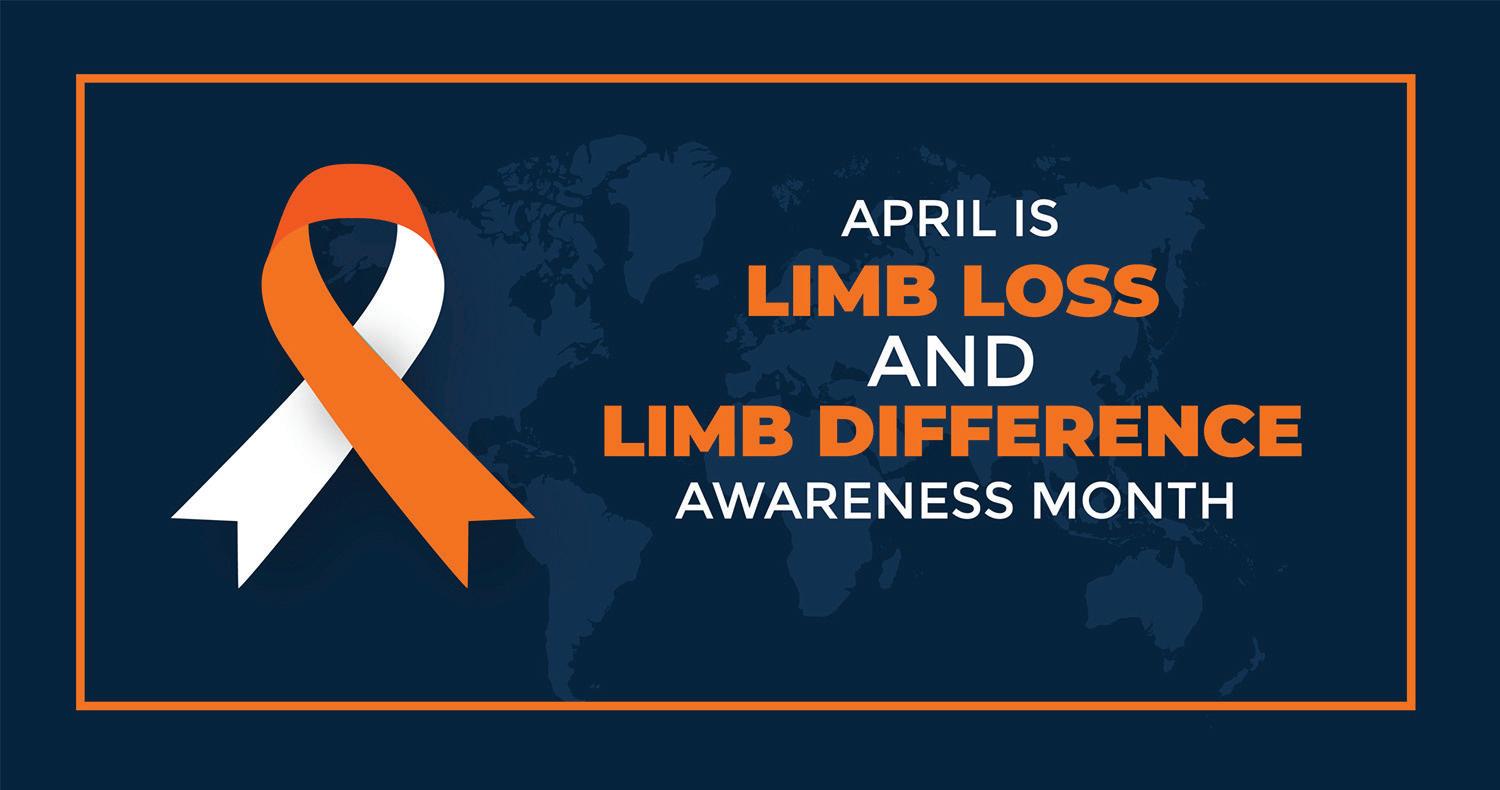
as the course of his life would take a dramatic turn on March 24, 2023 when he lost his leg. It would not be the first time his life would become disrupted.
Jon was diagnosed with diabetes when he was just 24. He weighed 465 pounds at his heaviest. He suffered two heart attacks — the first when he was just 32. Needless to say, Jon was no stranger to adversity.
“At first, the general consensus was that it wasn’t going to cost me my career.” Jon said of his limb loss.
Jon lost his right leg below the knee. He had been a truck driver for 23 years and had logged 2.53 million safe miles with the company he was driving for before his injury, On Time Courier, out of Lebanon, Ky. That injury would result in a devastating infection, causing Jon to not only lose his leg, but also lose the career he loved. It would happen not so much because of his limb loss but because of red tape.
“I miss the road every day,” he said. “I loved it.”
A snafu with a required DOT waiver that would allow Jon to continue driving across state lines with a prosthetic leg would cause his career to come to a screeching halt, along with his income.
“That company was very, very good to me,” Jon recalled. “I was off work four months and my paycheck never stopped.”
“I’ve been denied Social Security seven times,” Jon said. “They tell me I’m not disabled enough. They don’t consider an amputation disabling.”
Since Jon did not meet the SSA’s criteria for being disabled (despite other health issues), it was a mad scramble to find a company that would hire him despite his disability. He was still trying to acclimate to his new reality and he was still healing.
“I was dealing with very limited employment opportunities,” Jon said. “I’m a liability.” Jon felt many of the jobs in our community for which he might be otherwise qualified were just not suitable for someone who is not able-bodied. He walks with a cane to help steady his gait and some days, he uses a wheel chair.
Modern Distributing was just the company to give him the break he needed. He currently works there as a night billing clerk and he said they have been very good to him and understanding of his disability.
Jon said his previous employer, On Time Courier, and now Modern Distributing have been the only two employers that have made accommodations for him because of his limb loss while also making him feel valued.
“Working at Modern has saved my life.”
Due to neuropathy in his feet, Jon did not realize a little piece of metal had become embedded in his right foot. “It wasn’t even a millimeter in size,” he recalled.
“I noticed my foot was getting red and I thought it was getting infected.”
That was on a Monday. By Wednesday, Jon said his foot was so swollen he couldn’t get his boot on without forcing it.
By Friday afternoon, he went to his doctor who told him he had wet gangrene — a severe, rapidly spreading and lifethreatening condition.
Jon said he went to Lexington via ambulance. Having previously sustained two heart attacks, and the nature of how quickly the infection was spreading, there was no time to take chances.
Jon said he arrived at UK Hospital that evening. As the infection
Jon Strunk stands tall as a true testament of the power of the human spirit to overcome adversity.
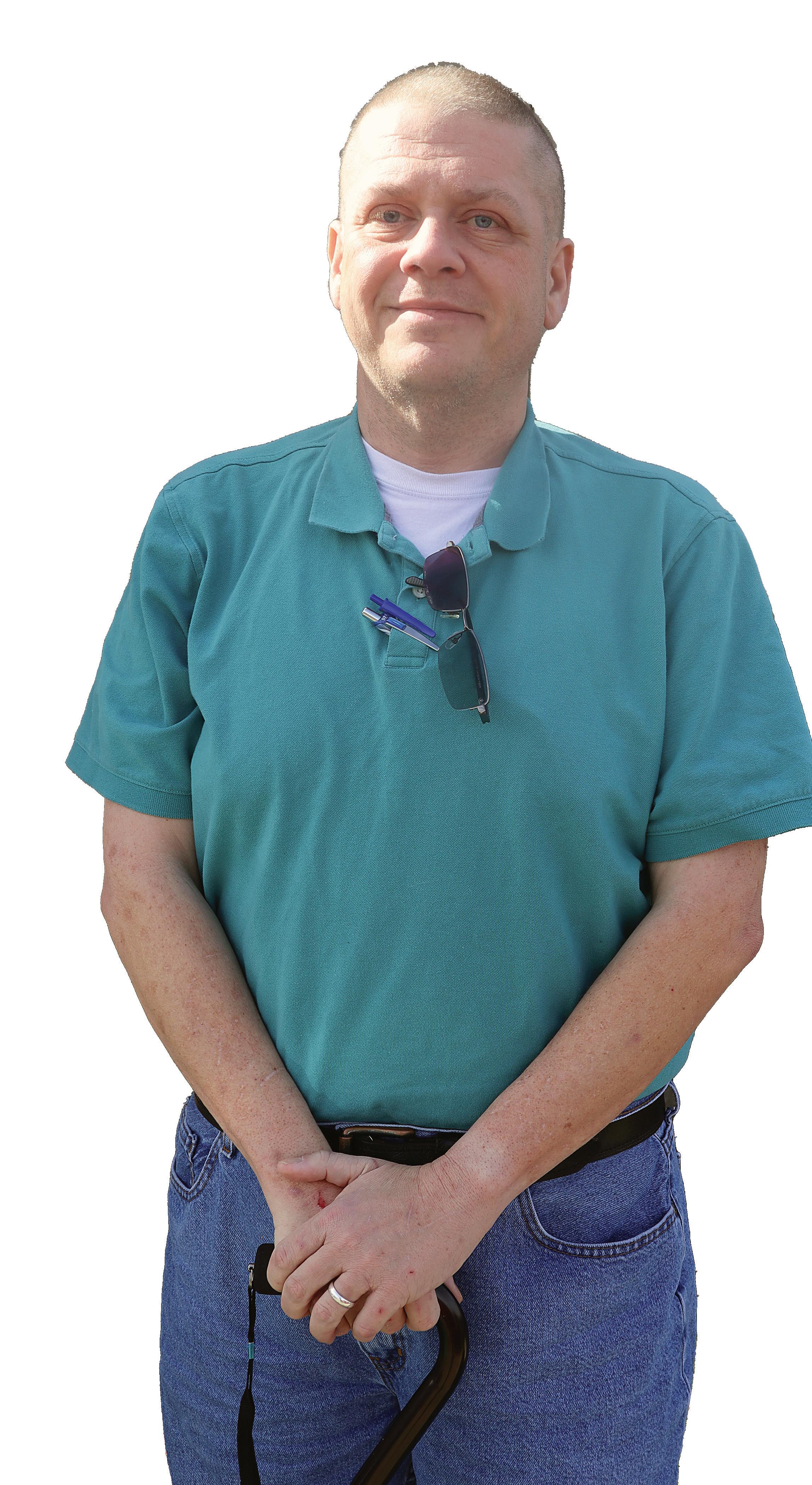
“Working at Modern has saved my life.”


continued to travel, he was told he would have to lose his foot to stop it.
He noticed a red spot developing about midway up his shin that was spreading out and feared the worst.
Jon wouldn’t know just how much of his leg would be lost until he woke up from surgery. He said he was told the severity of his condition was beyond just cutting out the dead tissue.
“I knew in my heart my career was over,” he recalled. “I started crying because that’s the only job I had done since I was 21 years old.”
He said any hope of keeping his CDL would depend on how much of his leg needed to be removed.
Everything below Jon’s knee and a portion of his calf would ultimately be removed.
He recalled waking up in recovery at 2:30 a.m. “I looked over and saw that the limb was gone.”
Prior to receiving his prosthetic leg, Jon said the staff at Cardinal Hill Rehabilitation in Lexington taught him how to get around with his walker and one leg.
He had to learn how to do basic tasks all over again with one leg.
“It’s amazing when you lose a limb, how you realize nothing can stop you almost.”
He went through physical therapy in the hospital prior to coming home. Then he followed up with PT Pros.
Jon said he was fitted for his prosthetic leg on July 15, 2023, and walked again on July 29, 2023.
“I want people to know they are not alone,” Jon said. “Losing a limb can be very traumatic because it closes more doors than it will ever open, especially toward employment.”
These days, Jon’s wife Sarah tells him he’s very independent. He tries not to let too much slow him down.
• Business Cards
• Personal Cards
• Calendars • Forms • Prints
• Pictures • Notepads • Signs
• Large Format Banners
• Labels/Stickers • Car Magnets
• Yard Signs & Much More!




It took fourth months from the time Jon lost his leg before he would walk using a prosthetic.
In the United States, more than 5.6 million people live with limb loss or limb difference.
This includes about 2.3 million people with limb loss and 3.4 million people with limb difference.
—Amputee Coalition
Jon belongs to a Facebook support group — Amputees of Kentucky — which is run by Cardinal Hill. n
For more information, visit /amputee-coalition.org/
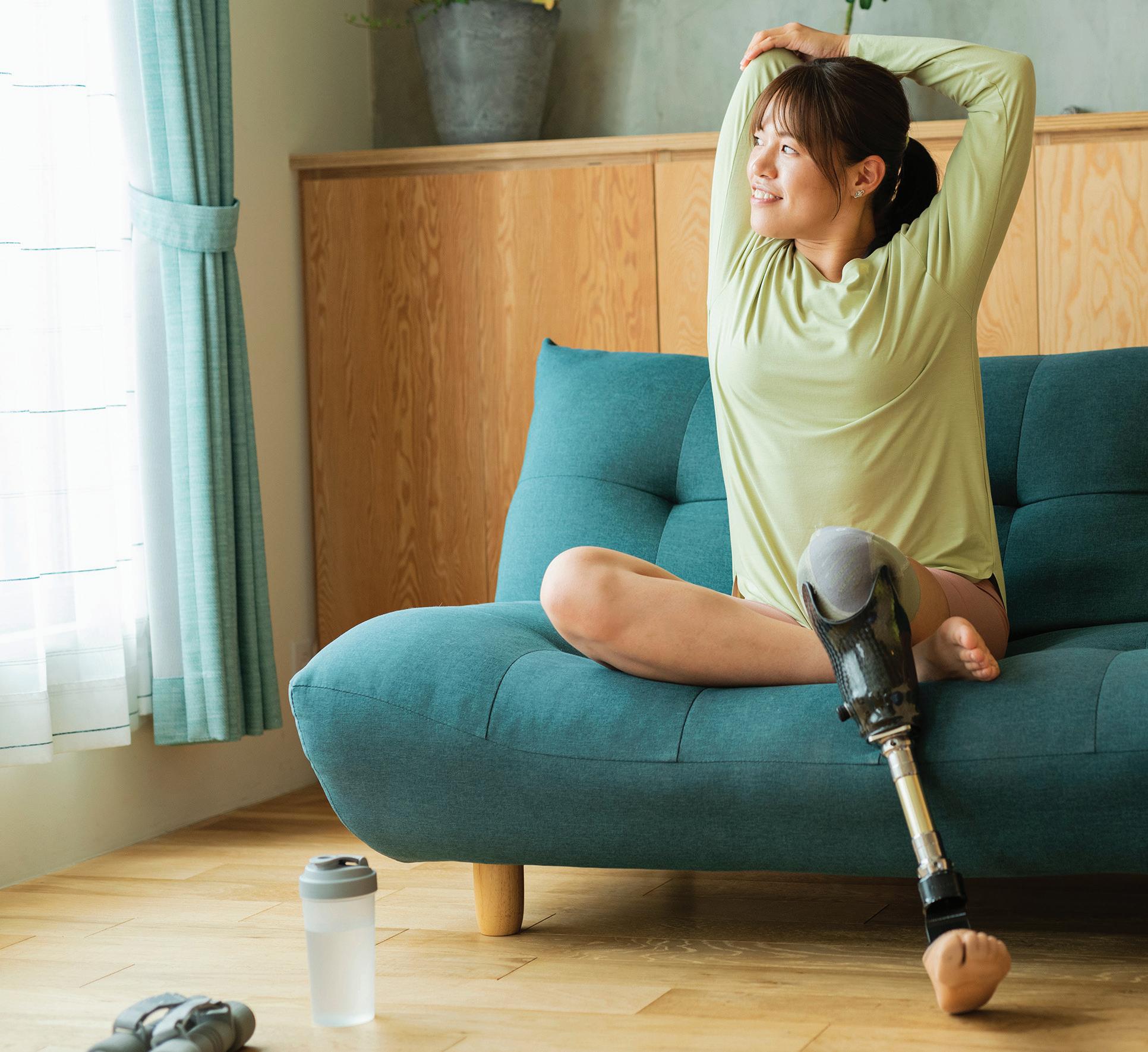
By McKayla Ginter, OTR/L
Occupational therapy plays an important role when someone goes through an amputation. It works on improving an individual’s ability to participate in activities of daily living (ADLS) or self care tasks (eating, dressing, bathing, toileting, etc.) as independently as possible. OTs also address tasks that are important to the individual such as a hobby or work-related task.
With an amputation, occupational therapy can begin very soon after someone undergoes an amputation in the acute stage. It can be as soon as the following day after surgery. During this time, an occupational therapist will help the individual adapt to new ways of completing their ADLs (activities of daily living) such as putting on pants from a lying position due to decreased balance or learning how to transfer to/from the toilet using an adaptive technique.
Occupational therapy is also important after the patient receives their prosthetic. The same concepts would be addressed such as bathing, toileting, and dressing but it would now be focused on using the prosthetic during all their daily tasks.
Another task that an occupational therapist would provide to an individual during prosthetic training is teaching the individual how to apply/remove the prosthetic from their limb. It is also important for the individual to be educated on the redness/ swelling in the area of the prosthetic to ensure proper fitting.
Occupational therapists will work closely with physical therapists to ensure the patient is safe walking using a walker/cane, navigating stairs, and transferring in/out of vehicles.
Lastly, occupational therapists can provide education and teaching to the individual on how to drive with the prosthetic. However, in order to teach an individual adaptive driving techniques, a special certification is required.
Overall, occupational therapy is very valuable when an individual is recovering from an amputation and during prosthetic training.
Occupational therapy can be given in different settings which will change as the individual recovers from an amputation. An occupational therapist may come while they are still in the hospital to provide education, teach adaptive techniques for ADLS, and to maintain/build strength and endurance. These sessions will typically last only 20-30 minutes a few times a week.
Once the individual is medically stable, they may qualify for an inpatient rehabilitation stay where the therapist will work with the individual in a more intense setting, usually over an hour for approximately five days a week, to help them achieve independence in their ADLs to safely go home. Skilled nursing facilities can also provide continued therapy after an individual is discharged from the hospital.
Lastly, an individual can attend outpatient therapy sessions to further address ADLs once discharged home. These sessions are typically 45 minutes to one hour, a few times a week. Inpatient rehabilitation and outpatient therapy are also options for OT once the individual receives their prosthetic for prosthetic training. n
McKayla Ginter, OT works on the rehabilitation unit at Lake Cumberland Regional Hospital. .

Mall! From BAUBLES to fill BASKETS, the finest EASTER OUTFITS for the family, and charming JEWELRY, to GIFTS for giving, and seasonal DECOR, we’ve got you covered!

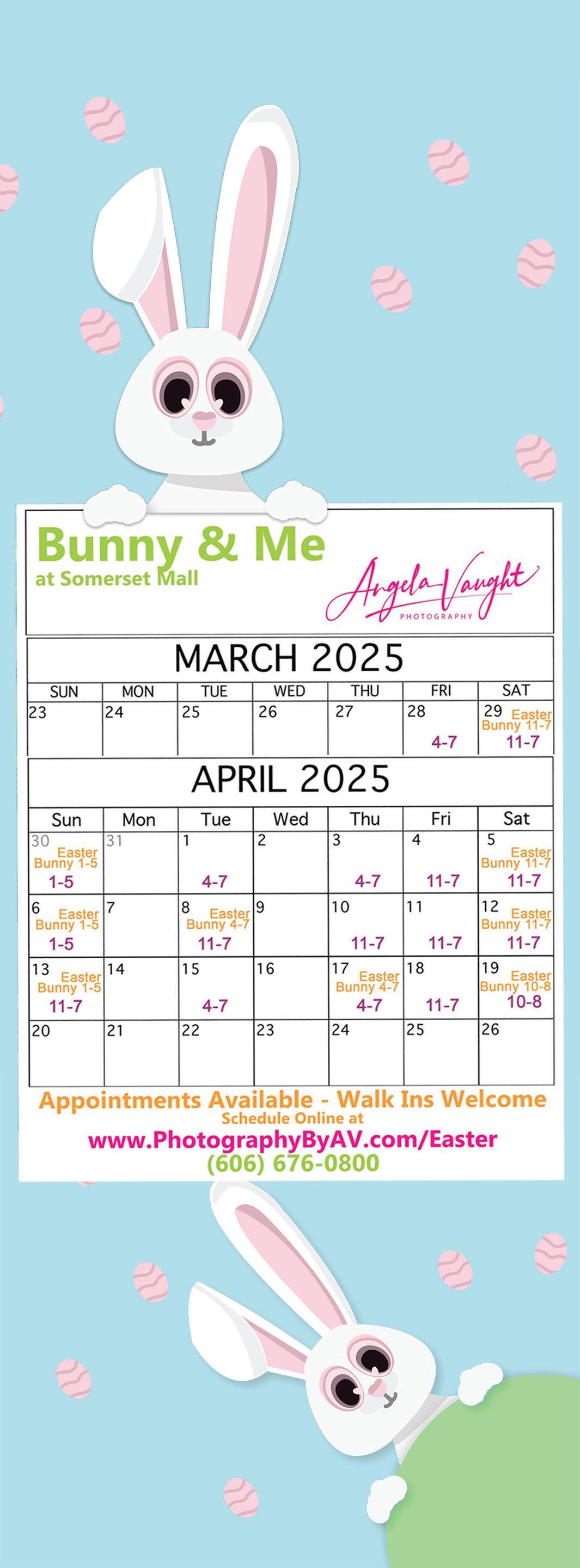


bodies. He said they may have the mental capacity to move, yet their bodies are restricting them.
Although there is no cure for Parkinson’s, Dr. Ahmed offers hope for trying to live one’s best life while staving off the effects of the disease for as long as possible.
“One 50-minute, moderate intensity, aerobic exercise per week is the recommendation for most Parkinson’s or other neurodegenerative patients,” Dr. Ahmed offers, stating studies show that patients who follow an aerobic exercise protocol can have delayed onset of symptoms. “They stay more functional for a longer period of time,” he explained.
“Whatever makes you short of breath and makes your heart go a little faster is helping you in one way or another.” Dr. Ahmed suggests that in order to get the full benefit of an aerobic exercise, be sure to get that recommended 50 minutes. He said being active is not enough. “If your heart rate is not going up, it’s not an aerobic exercise.”
“I also like to add a little bit of weight training for my older patients,” he says, suggesting at least 15 minute durations using small weights of three to five pounds.
“Do some exercises for your core and for your arms and legs to improve your muscle tone and bone density,” Dr. Ahmed adds. He stresses the importance of having enough strength to help prevent fractures from falls. “Once they get a fracture, that basically puts them down for a very long time.”
The Kentucky Safe Aging Coalition says falls are not a normal part of aging and disproportionately affect persons aged 65 years and older. Falls may result in injuries that require medical care; some may result in death. Visit their website at safekentucky.org to learn about their prevention efforts.
Dr. Ahmed recommends dietary changes that may help delay Parkinson’s symptoms. The “MIND” diet (Mediterranean-DASH Intervention for Neurodegenerative Delay) combines elements of the Mediterranean and DASH (Dietary Approaches to Stop Hypertension) diets. The purpose is to promote brain health and reduce the risk of cognitive decline and Alzheimer’s disease.
Key components include emphasizing vegetables, fruits, berries, whole grains, nuts, seeds, and beans; using olive oil as the primary cooking oil; consuming fish at least once a week and poultry at least twice a week. The diet also suggests reducing intake of red and processed meats, butter and cheese, and sugary drinks.
Dr. Ahmed recommends PD patients make sure they are not vitamin deficient and are getting get adequate Vitamin D. (If you are uncertain, ask your primary care practitioner to test your levels.)
Dr. Ahmed says research suggests that our gut microbiome — that immense collection of microorganisms that live in and on the human body — might also play a role in PD.
“There is a GI predisposition that as your gut chemicals and flora change over time, it can predispose patients [to PD],” Dr. Ahmed says.
The National Library of Medicine says a PD study confirmed the gut microbiota contributes to motor deficits and neuroinflamation. As
Dr. Ahmed indicates, the study suggested that changes to our gut microbiome may represent a risk factor for PD, potentially contributing to disease onset, progression, or even symptoms.
Dr. Ahmed says this theory might be a factor for being predisposed to other neurodegenerative diseases as well.
There is genetic testing available for PD, however, Dr. Ahmed says it only applies to a more infrequent form of PD that runs in families.
“Those Parkinson’s patients are usually younger patients,” he says.
A report by Johns Hopkins Medicine indicates that the genetic link to PD occurs in about 15 percent of patients and is caused by genetic mutations which increase the risk of developing the disease.
anything.” He says this could include imaging tests.
“Parkinson’s has two components to it,” Dr. Ahmed explains. “There’s a movement disorder for the patient and then there is non-motor dysfunction.” Dr. Ahmed says the non-motor can actually impair your automatic control of bodily functions. “It can include your bowel function and even the sweating function.”
Dr. Ahmed says PD is one of the more common neurodegenerative diseases which also includes Alzheimer’s Disease or dementia. He explains that neurodegenerative disease “happens over a period of time because of a debt of neurons that progress over a period of time and become more severe.”
“ We always want to rule out other causes. There are other medical conditions which can mimic symptoms of Parkinson’s. ”
—Dr. Ausef Ahmed
Dr. Ahmed says a PD diagnosis is more rare for younger individuals. “The usual age is age 60 and above. If it happens earlier than that we call it early onset Parkinson’s Disease.”
Dr. Ahmed says PD requires a clinical diagnosis and might be suspected in a patient with a frequency of falls. He said other symptoms are the presence of tremors, rigid movements, or “bradykinesia,” which is a slowness in movement.
“We always want to rule out other causes,” Dr. Ahmed says. “There are other medical conditions which can mimic symptoms of Parkinson’s.”
“Whenever the diagnosis is made, a neurologist will evaluate for other conditions to see if they are missing
Neurons send messages throughout the body allowing it to function. It includes everything from breathing to talking, eating, walking, and thinking. The National Institute of Neurological Disorders and Stroke has a very easy-to-comprehend website (ninds.nih.gov) which helps explain the life and death of a neuron.
Dr. Ahmed says that neurodegenerative disorders can be caused by many factors such as traumatic or recurring head injuries over a period of time, as well as exposure to toxins such as certain pesticides or other toxins. “So we think it’s multi-factoral and not just one thing that starts the process over a period of time,” he explains.
“The thing about Parkinson’s, is when it hits at its peak, the patient realizes life is so limited for them because they cannot move around freely, they have more falls, and all those things they are suffering with,”
says Dr. Ahmed. He explains that he starts patients on medication, which when it works, allows the patient to feel much better.
He says managing the disease also requires patients taking care of themselves and by not doing so it can adversely impact the prognosis of the disease.
“If they don’t take care of themselves by changing their habits, and lifestyle, and exercise, the medication sooner or later will stop working and they will need more medications until they reach the peak of medication doses,” he says.
Once a patient reaches that peak, Dr. Ahmed says things can take a turn for the worse, causing a patient’s abilities to become limited.
Dr. Ahmed stresses that diagnosing the disease sooner rather than later, and following recommended protocols can be the hope a PD patient needs to maintain their quality of life and prolong becoming disabled by the disease, as well as prolonging their life expectancy.
Additional hope comes by way of more medications and options becoming available. Dr. Ahmed explains there are even different medication delivery mechanisms available now to help patients who have difficulty swallowing or who cannot otherwise tolerate oral medications.
He explains the medications used to treat PD are trying to regulate dopamine in the body in one way or another. Dopamine, a
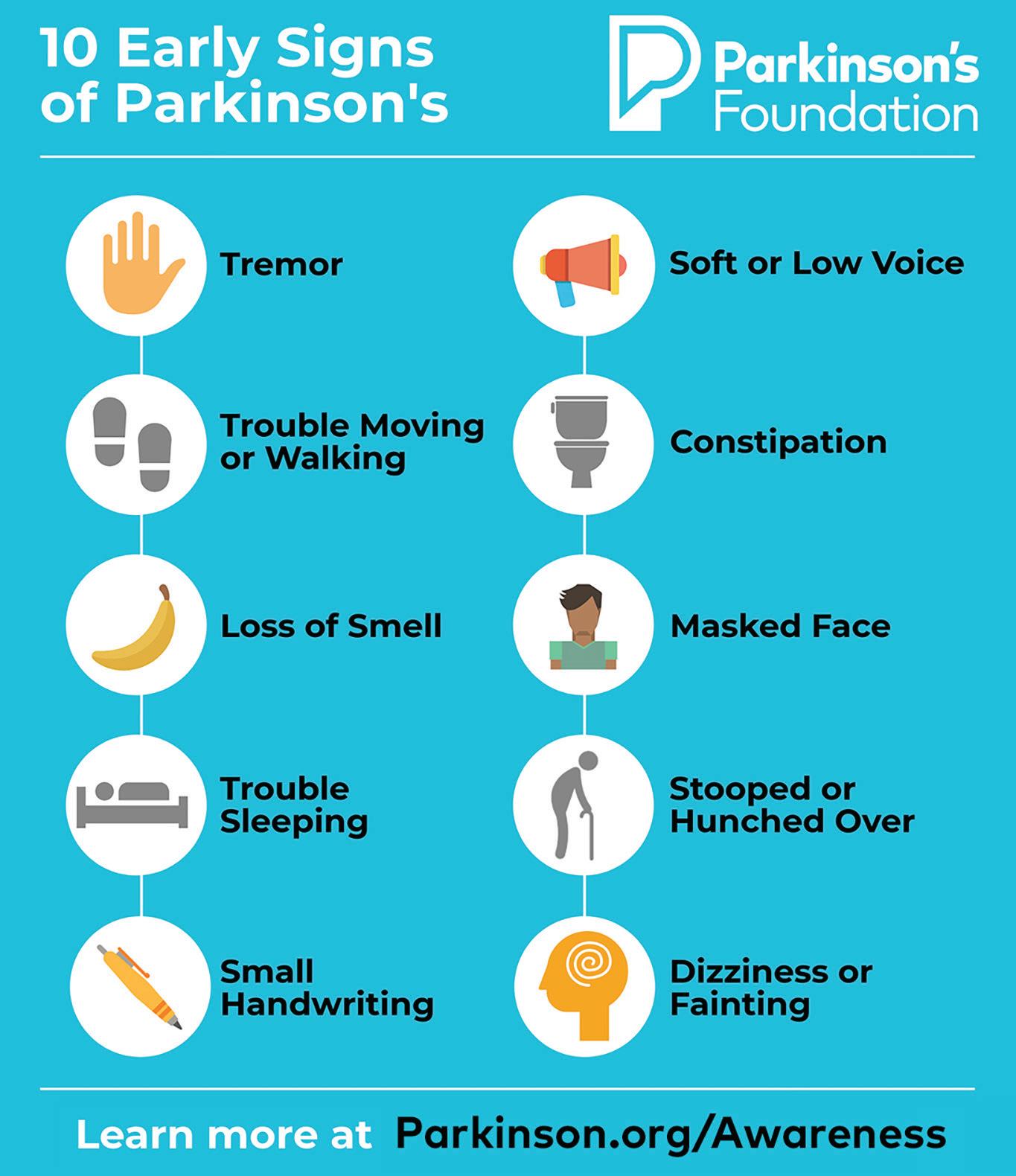
neurotransmitter, is a chemical messenger that plays a crucial role in various bodily functions including movement. Dr. Ahmed says once dopamine is deficient, movement starts to decrease.
There are also more and more surgical options becoming available to help in the fight against PD according to Dr. Ahmed. He further explains that the delivery of medications is evolving with the use of a subcutaneous pump as well as a treatment using an intestinal tube.
“Parkinson’s Disease in the long run does reduce the lifespan,” Dr. Ahmed says, clarifying that it’s not typical to be able to interpret just how the disease will progress in a particular patient since the progression is different for everyone.
He stresses early diagnosis and the patient’s self care as being the main factors that can help prolong a PD patient’s lifespan which he says can be 20-30 years after diagnosis. He added that for a person who is diagnosed at the typical age range of age 60-70, that is an average life expectancy. Dr. Ahmed said the way PD progresses in the body, it can lead to dementia, affect swallowing, and increased falls.
Dr. Ahmed reiterates that with proper treatment and self care, it is possible for a PD patient to stay independent for several years. There may not be a cure yet but he says there is hope with these newer medications and technologies. n
Note: It’s important to consult with your healthcare professional before making any significant changes to your physical routine or diet, especially if you have any underlying health conditions.
Dr. Ausaf Ahmed is board-certified in neurology. He provides specialty care for patients suffering from acute strokes, common movement disorders, Multiple Sclerosis, dementia, headache syndromes, seizure disorder, neuro-muscular conditions, and more. He attended medical school at Ziauddin Medical University in Karachi, Pakistan, completed his residency at the University of Toledo Medical Center in Toledo, Ohio, and completed his fellowship at The Mayo Clinic in Rochester, Minnesota. Learn more at Lakecumberlandhospital.com. For more information about Parkinson’s Disease, visit parkinson.org or michaeljfox.org.
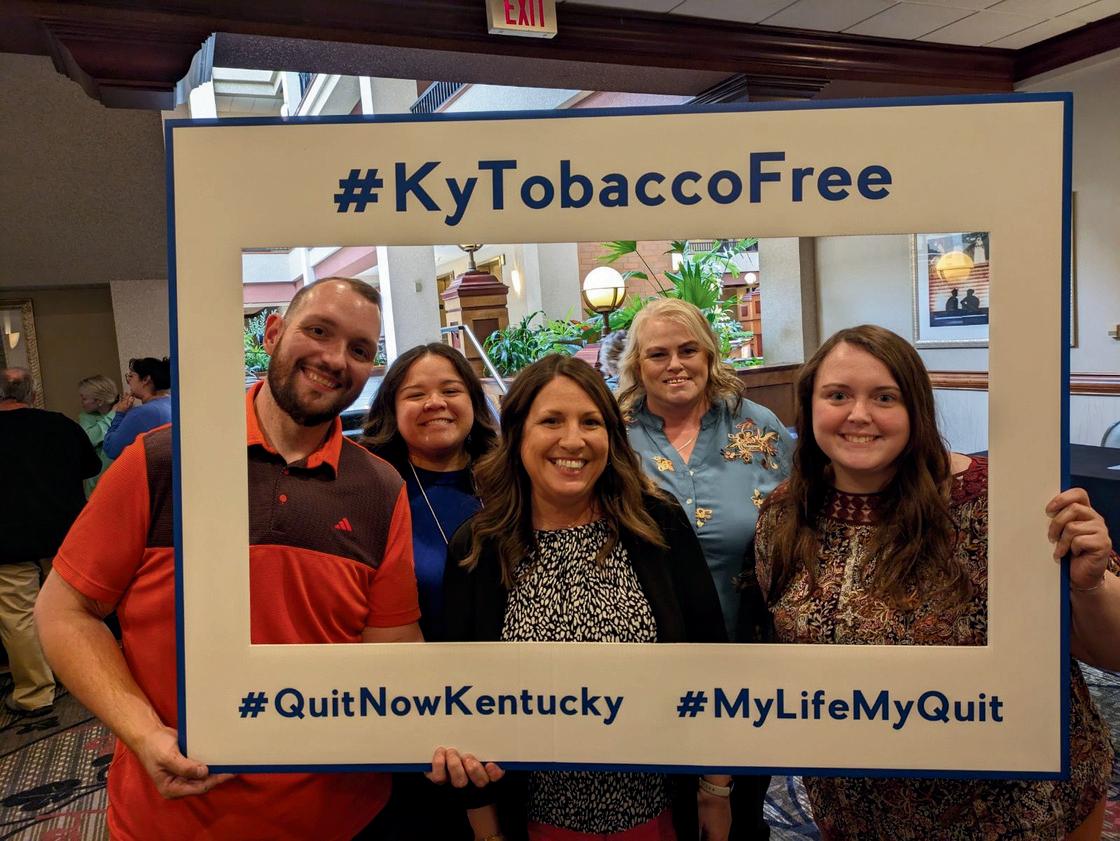
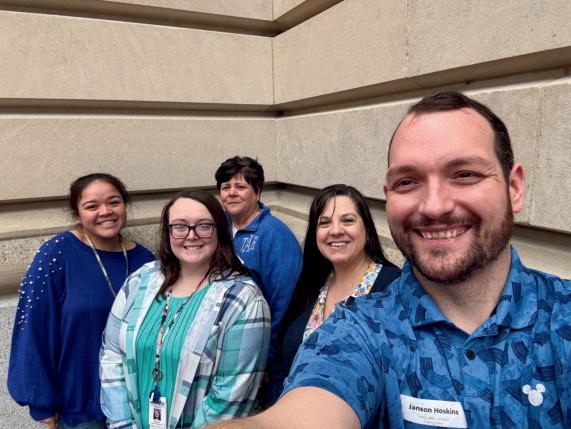
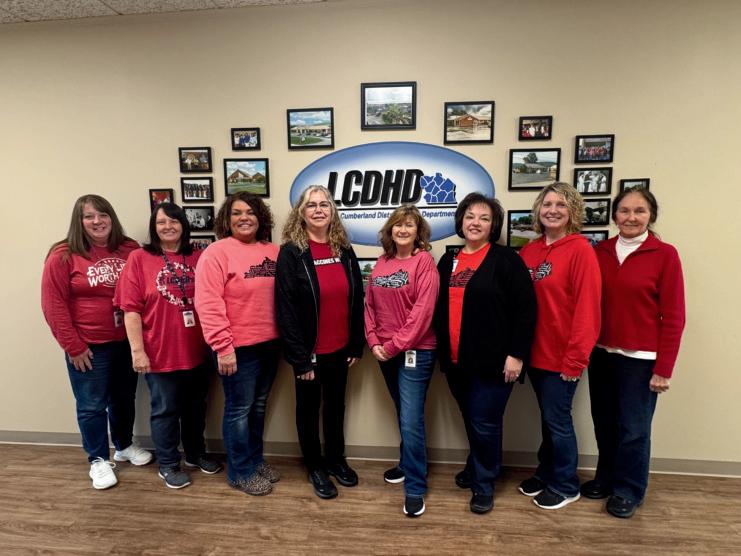
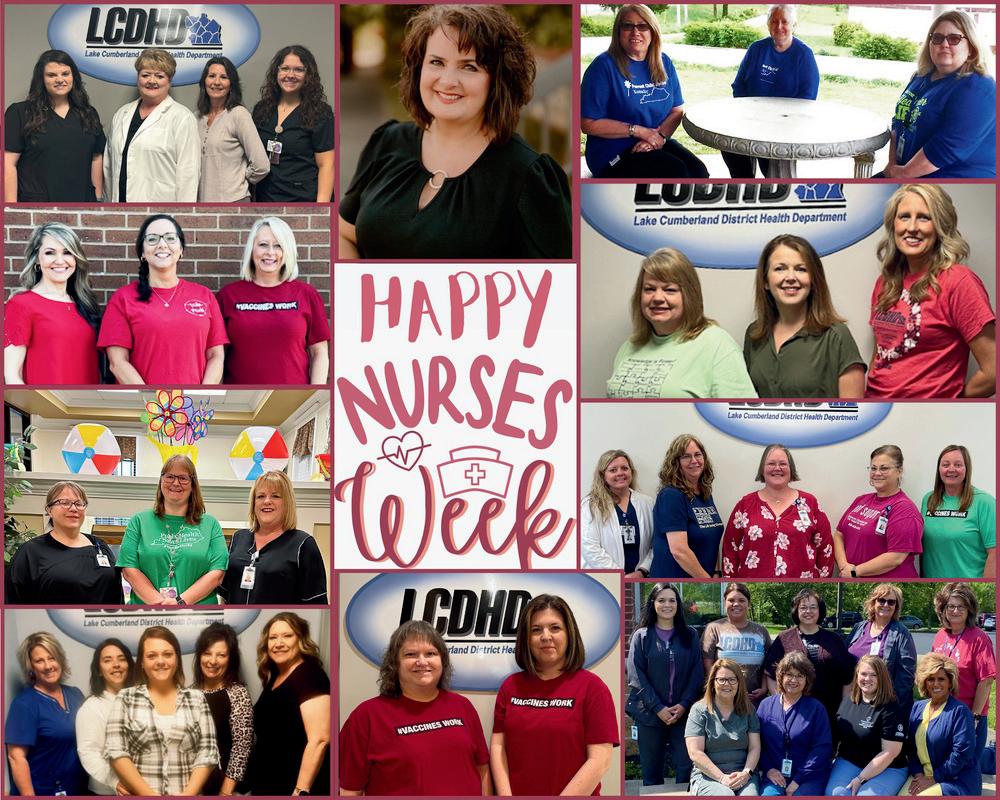
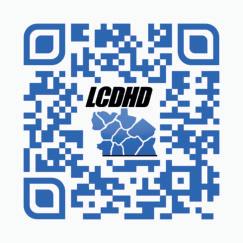
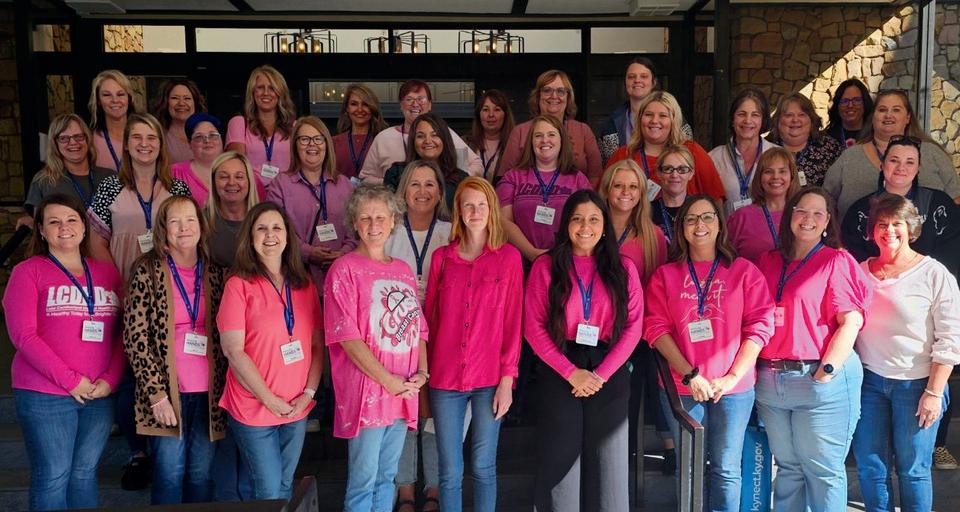
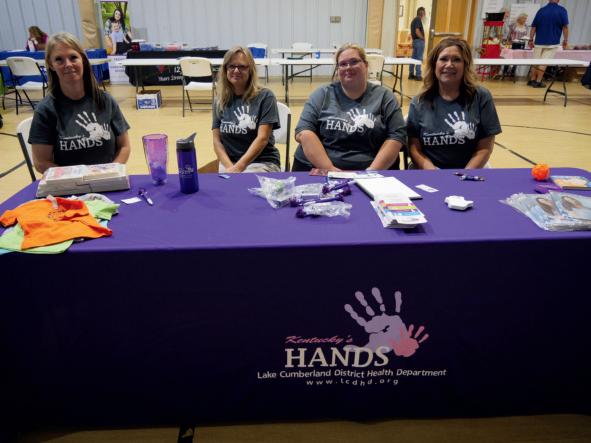
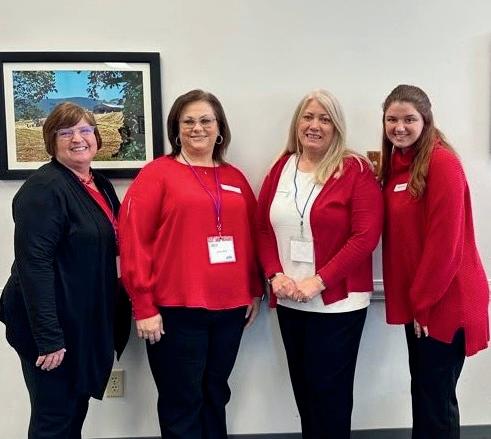
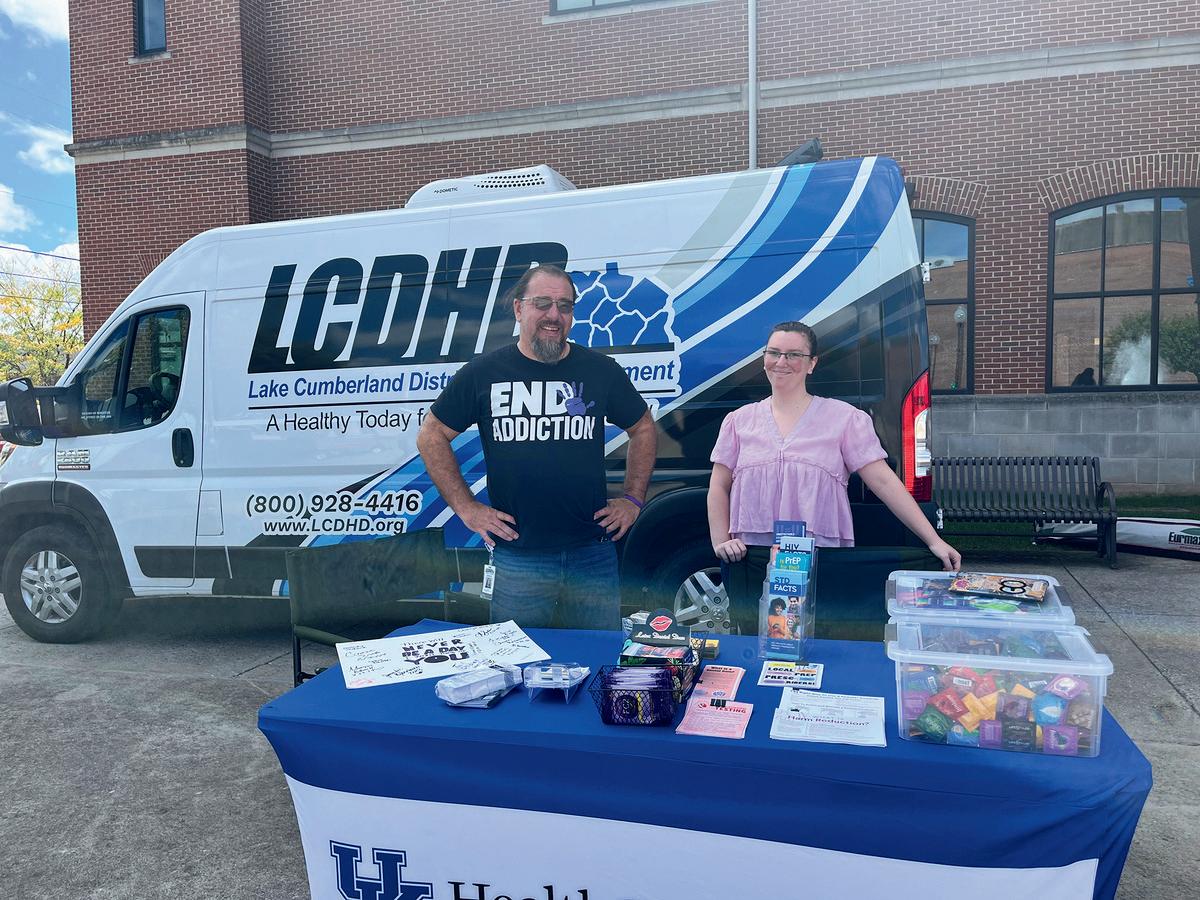

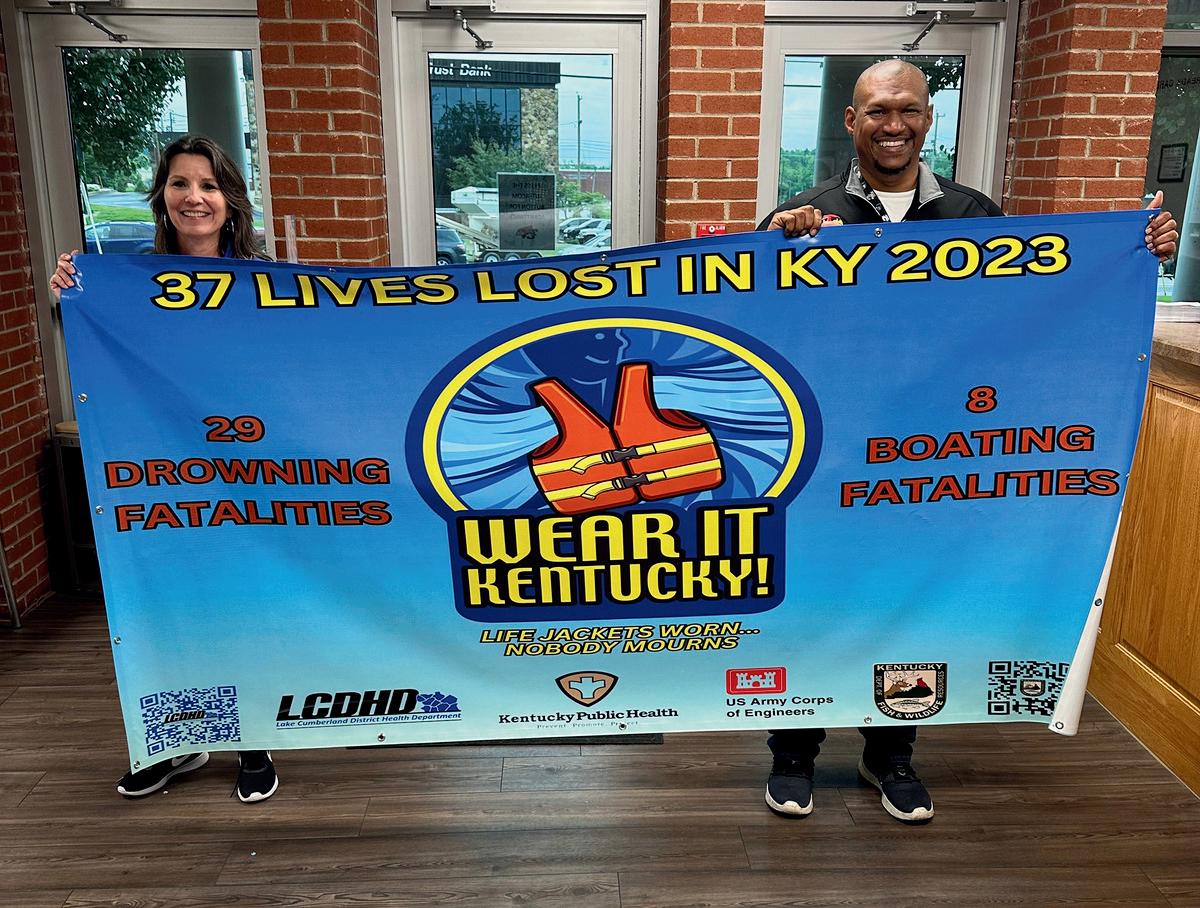
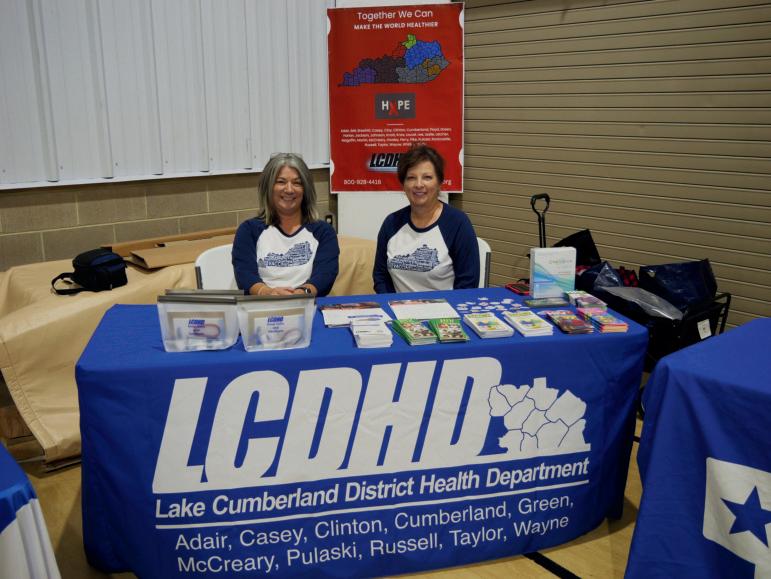
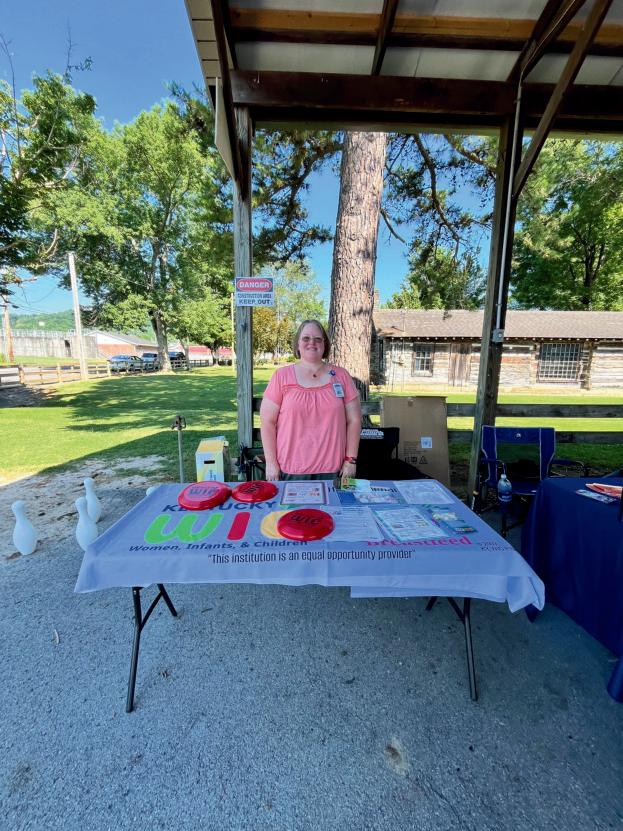
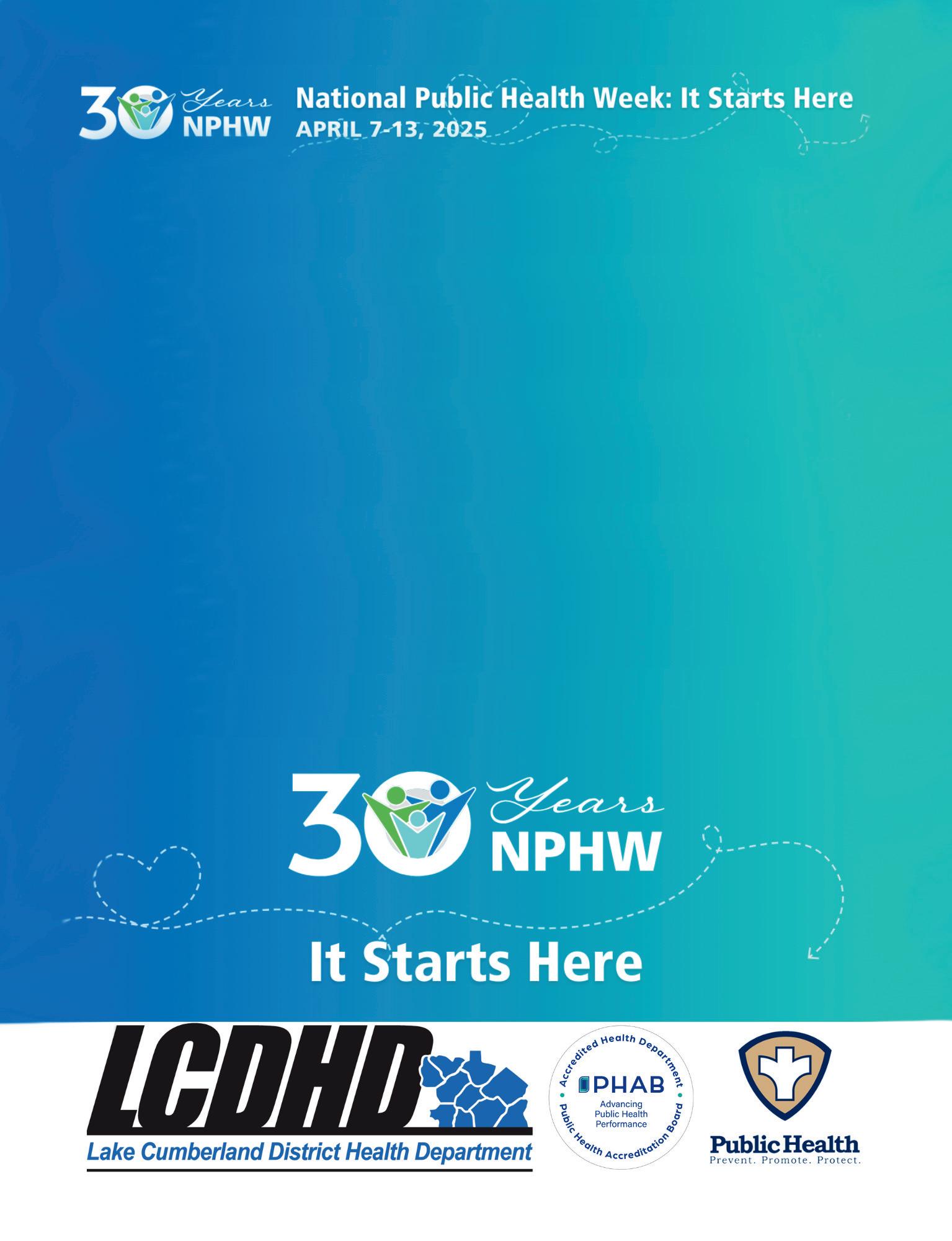
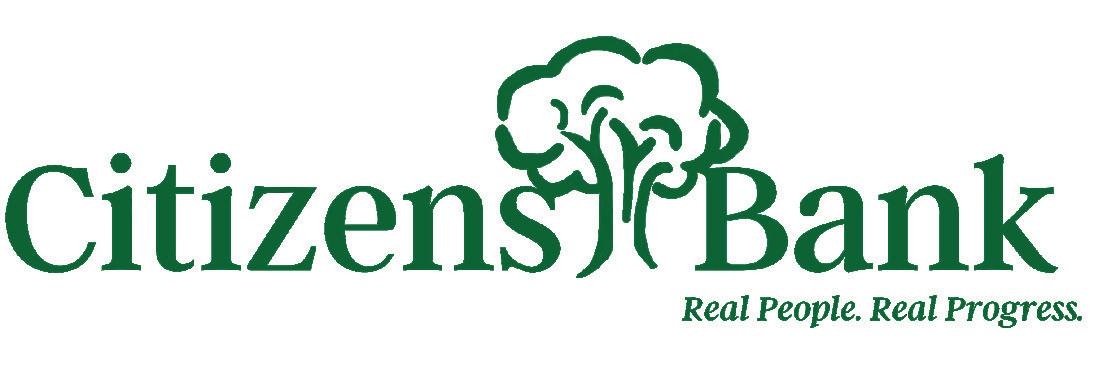
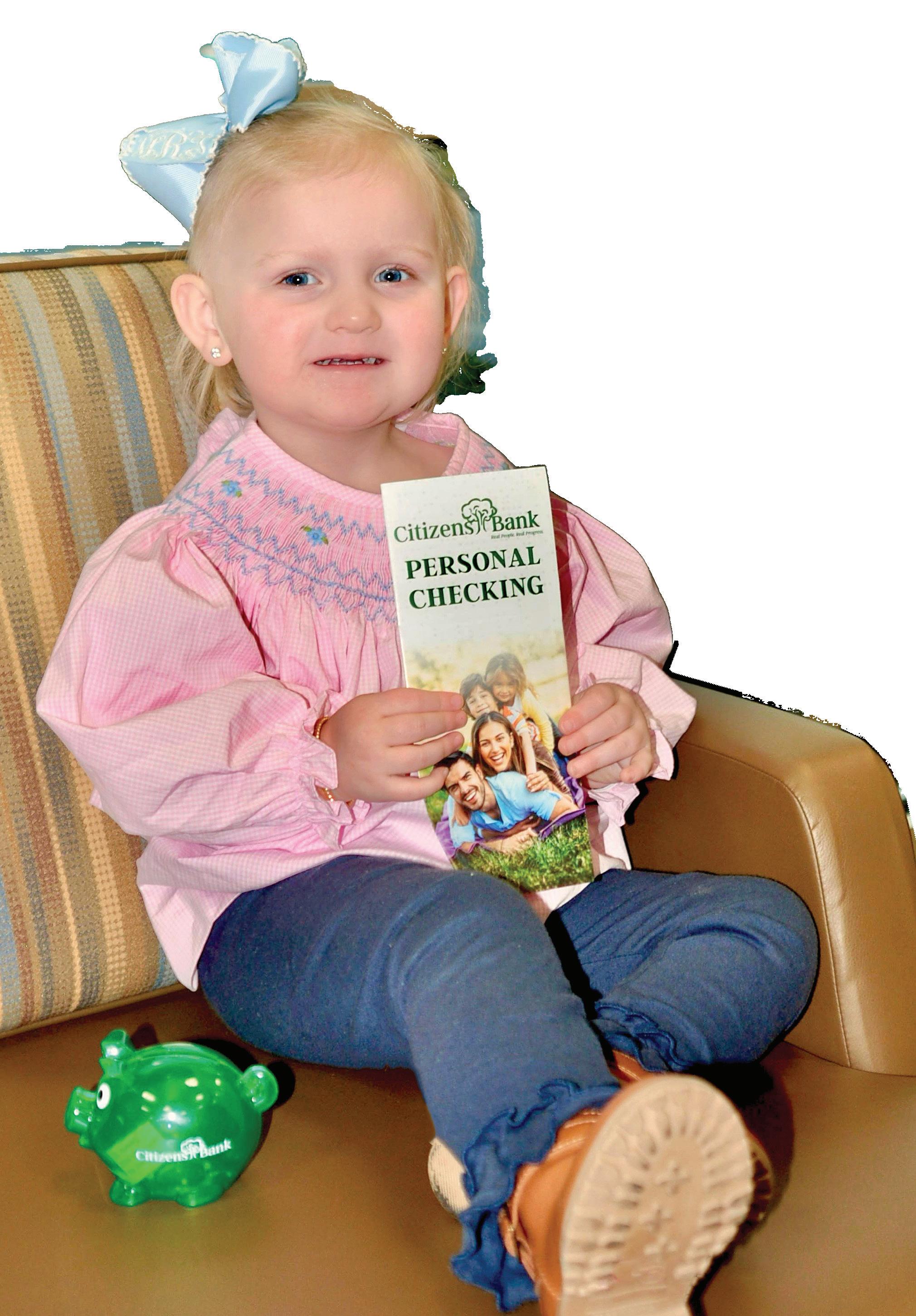
Story and photos by Rikiyah Pryor
April is Financial Literacy Month, a time dedicated to raising awareness about the importance of understanding how money works. At Citizens Bank, we believe financial literacy isn’t just a skill — it’s a lifestyle choice that should start early and evolve throughout life.
Imagine if we all had the opportunity to learn about money management from childhood. Instead of struggling with budgets, credit scores, and loan applications as adults, we’d already have a foundation in place. That’s why Citizens Bank
encourages parents to introduce financial conversations to their children at an early age.
For Trevor Ridner, branch manager and loan officer of the Somerset branch, financial literacy isn’t just part of his career — it’s a value he shares with his daughter, Hadley Tate. “I want Hadley to grow up understanding the importance of saving, smart spending, and giving,” Trevor shares. “We talk about money in a way that makes sense for her age. If she gets birthday money, we set aside some for saving, some for spending, and some for giving. She gets excited about watching her savings grow.”
Trevor and his wife, Shandi, are a young and growing family who understand firsthand the importance of financial literacy. Trevor’s family played a crucial role in teaching him how to manage money, a lesson they now pass on to Hadley. More than just budgeting and saving, they emphasize generosity, teaching Hadley the value of giving back. Whether it’s donating to community organizations like Young Professionals of Lake Cumberland or local high school athletics, they instill in her the belief that financial wellness includes sharing blessings with others.
Two-year-old Hadley Tate is getting a head start on her financial wellness, thanks to her parents teaching her about money management at a young age.
“ I want Hadley to grow up understanding the importance of saving, smart spending, and giving.”
—Trevor Ridner
“I was lucky enough to grow up in a family that understood the value of hard work and financial responsibility,” Trevor says. “My parents taught me that every dollar has a purpose — whether it’s for saving, spending, or giving. That’s something I want Hadley to understand, too.”
Trevor’s experience echoes the need for families to have these simple but impactful conversations. Financial literacy isn’t just about numbers; it’s about making informed decisions that shape the future.
At Citizens Bank, we recognize that financial literacy isn’t something everyone has had the chance to learn. Life is complicated, and financial setbacks happen. That’s why we take the time to sit down with our customers, without judgment, to provide the tools and guidance they need to make smart financial choices.
“We never want anyone to feel ashamed about not knowing something when it comes to finances,” Trevor explains. “That’s what we’re here for—to guide, educate, and support our customers no matter where they are in their financial journey.”
Citizens Bank was founded on the principle of being more than just a financial institution—we are a part of the community. Since our establishment, we’ve worked to build trust and relationships with our customers, ensuring that financial education is accessible to all. Whether it’s a teenager opening their first savings account, a young couple looking to buy their first home, or a
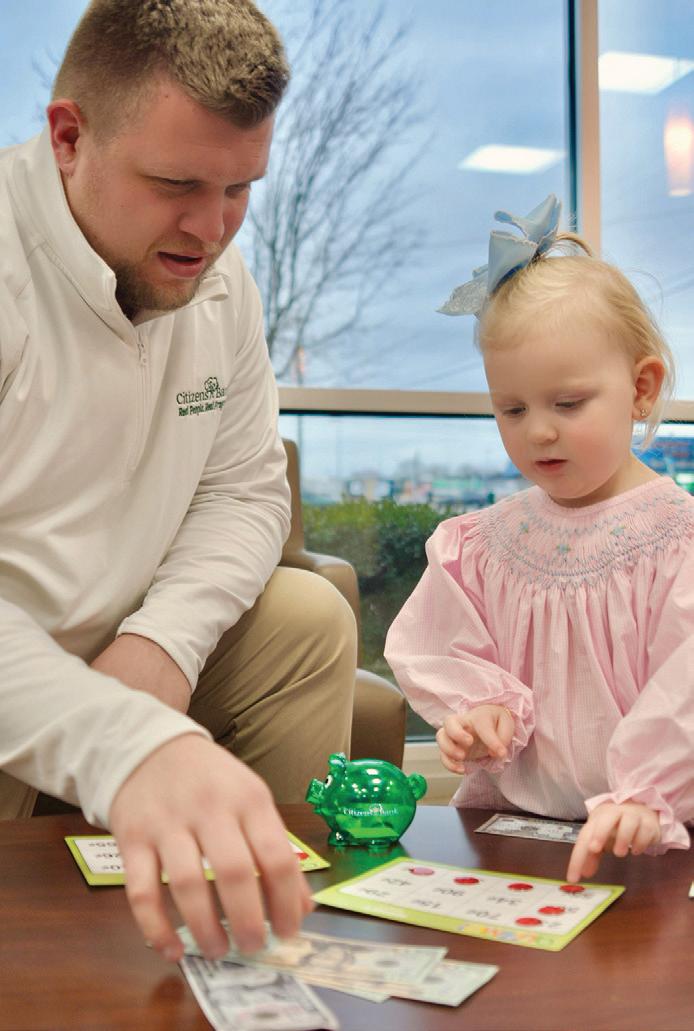
and
retiree planning their next chapter, we believe financial knowledge is power.
Many people think financial literacy is complicated, but it doesn’t have to be. Citizens Bank offers resources such as financial workshops, one-on-one consultations, and online tools that simplify budgeting, saving, and investing.
Trevor has seen firsthand how a little education can make a big difference. “I’ve had customers come in overwhelmed, unsure of where to start. But after just one conversation, they leave feeling hopeful. We help people take control of their finances, step by step.”
“We’re not just here to open accounts and approve loans,” Trevor adds. “We want our customers to feel confident in their financial decisions. That means giving them the tools and knowledge to succeed, not just in the short term, but for life.”
As part of our commitment to financial literacy, we encourage parents, teachers, and mentors to make financial education a priority. Schools are incorporating more personal finance into curriculums, but learning at home is just as important. Simple habits—like allowing children to budget their allowance or discussing the value of money at the grocery store—can create a strong foundation for future financial success.
Financial education doesn’t just help individuals—it strengthens entire communities. When people feel confident about their financial decisions, they are more likely to invest in their futures, support local businesses, and give back.
As a community bank, we see ourselves as partners in this journey. Our goal is to provide resources that make financial literacy easy to understand and apply, no matter where you are in life.
“When people understand how to manage their finances, they make better choices for their families; that’s what I am trying to do for Hadley.”
As we celebrate Financial Literacy Month this April, we invite you to take a step toward financial wellness, whether it’s opening a savings account for your child, attending a financial workshop, or simply having an open conversation about money. Every small step counts.
At Citizens Bank, we’re here to guide you on this journey — not as just another bank but as a trusted neighbor who genuinely cares. Because when we invest in knowledge, we invest in brighter futures for generations to come. n
For more information about financial literacy resources and how we can help, visit your local Citizens Bank branch today. We are a member of the FDIC and an Equal Housing Lender.
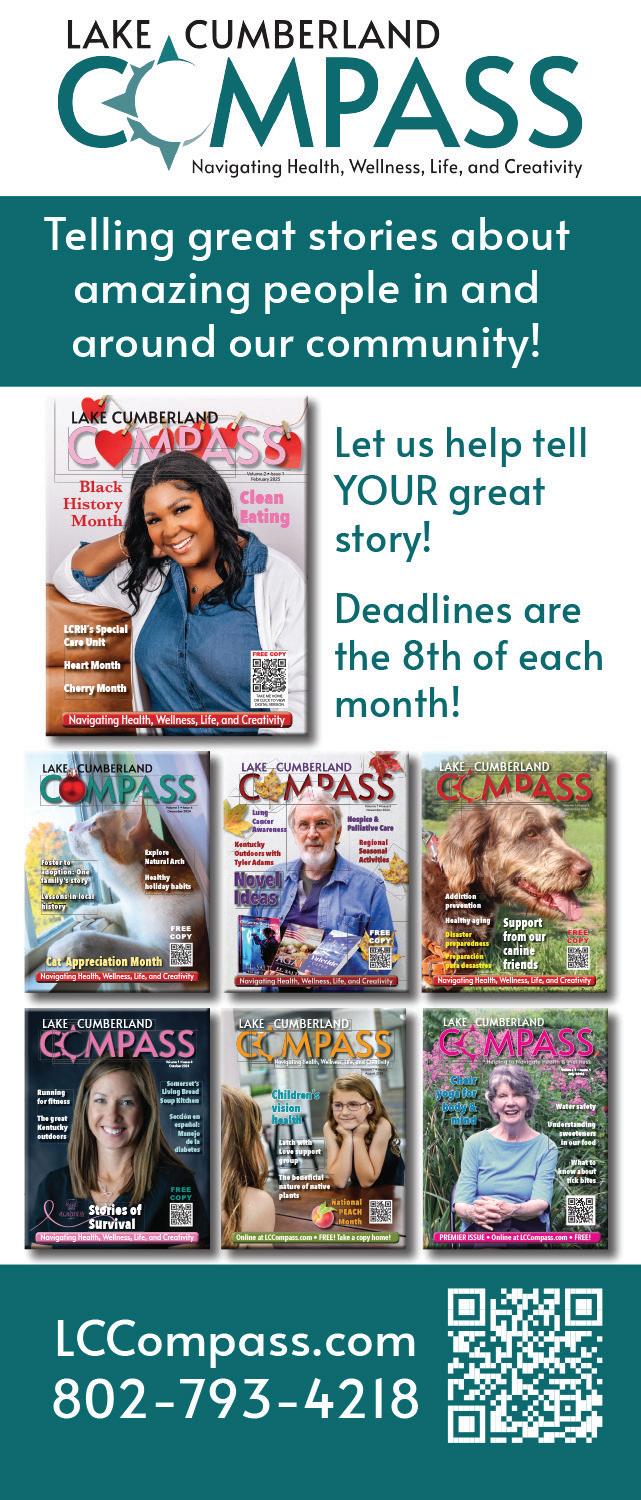
Ad packages start as low as $130 for an eighth of a page.
What are TikTok’s privacy settings? Can parents control what advertising their children see on Facebook? How do parents limit the amount of time their children spend on Instagram?
A new parent tool, the Glossary of Digital Media Platforms, offers the answers and will be handy for parents of children trying out new phones or other tech-related holiday gifts. The American Academy of Pediatrics Center of Excellence on Social Media and Youth Mental Health developed the free resource, which contains detailed information on popular digital platforms, including Apple, Discord, Facebook, Instagram, Pinterest, Snapchat, TikTok and X, with more to come.
“Parenting around media can be so challenging,”

Largest selection of home decor fabric in the Lake Cumberland area!
❥ Priced way below wholesale
❥ Fabric and sample books
❥ Free design help
❥ On site drapery and upholstery services
❥ Home, marine and commercial
❥ Houseboat specialist
❥ Outdoor fabric and marine grade vinyl 30 Allens Way, Somerset, KY 42501 M-F, 10-6, Sat. by Appointment
said Jenny Radesky, MD, FAAP, co-medical director of the Center of Excellence. “Figuring out what apps and settings are best for your family is an important part of the conversation. At the center, we created the Glossary of Digital Media Platforms to make it a little easier for parents to learn about each app and figure out what settings and tools exist to keep their kid safe while connecting online.”
Users click on a platform to learn about its default and customizable safety settings; messaging and friending controls; screentime management settings; parental controls and more.
Parents aren’t the only ones looking for assistance when it comes to the online world. Pediatric providers, teachers and others who work with children and teens can introduce the glossary briefly during clinic visits, back-toschool nights, in newsletters, or other communications and encourage families to have conversations about safe and balanced relationships with social media. The tool can also facilitate conversations on concepts like private versus public accounts, time limits and how to block or filter upsetting content.
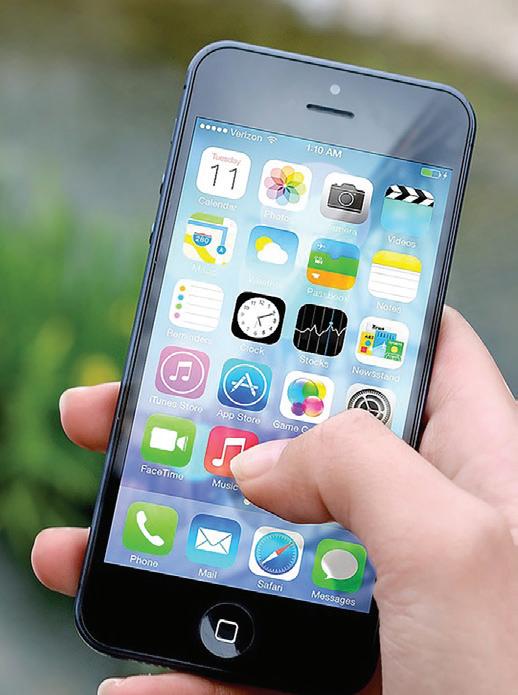
• For teens who are stressed out by negative content on social media feeds, the glossary contains information on tools to curate feeds and block and filter content.
• If a child’s school has a phone policy, families can look up device or app settings to silence distracting apps during school hours.
The glossary joins a roster of resources available at Center of Excellence on Social Media and Youth Mental Health, which includes conversation starters for parents concerned about how their children are using social media. The center’s activity cards can help young children build healthy relationships with media and their devices before they grow into teens and young adults.

• If children have iPhones, parents can learn more about the Family Sharing feature, which includes settings to limit who a child can contact, downtime/do-not-disturb settings and the Ask To Buy option that requires a parent to approve purchases.
• If social media and notifications are distracting teens at night, families can use the glossary to look up apps and how to silence notifications or activate other nighttime settings.
Megan Moreno MD, MSEd, MPH, FAAP, co-medical director of the Center of Excellence, urges parents and other adults to avoid taking a doom-and-gloom approach when talking about the sometimes-dangerous social media landscape with kids.
“We can give ourselves grace for these initial reactions of worry and fear, but we have a choice to make on what we want our reaction to be going forward,” Dr. Moreno said. “We can choose open-mindedness. We can choose curiosity. We can choose evidence over hype, and we can stay centered on our children and families.”
Perhaps she’s served you a drink at Birdies and Barrels. Maybe you met her while she was catering an event through a bartending company she co-owns. Or, it’s possible she helped you with a job at Commercial Printing. Chances are good you have encountered Vanessa Thompson, a go-getter who is skilled at wearing many hats.
“I have my hand in a lot of different things,” the resilient young woman said.
As if her busy world were not busy enough, Vanessa recently added another role to her growing list of skills — REALTOR®.
Vanessa became a realtor at the beginning of the year with Century 21 Advantage Realty. With her “go get ’em” entrepreneurial spirit, she created and designed her own buyerseller guide. “It kind of simplifies the buying and selling process for my clients, making it easy and fun.”
“As an entrepreneur, I feel like you have to be so hands-on with everything and you spread yourself so thin. It’s hard trying to figure out what direction to go in that’s going to be the most lucrative,” Vanessa said.
“I’m looking into some different tools to help me work smarter, not harder because I have so much going on all the time.”
Through Lifted Spirits, LLC, which Vanessa co-owns with Bethany Morgan, they’ve been serving up drinks and mocktails for the last couple of years at weddings, private parties, corporate events, and more.
Vanessa said she’s more focused these days on building her real estate business. She said she’s always been driven and that’s why she chose to enter real estate.
“My ability to make money in that field is completely dependent on how hard I am willing to work,” she said.
“I can always bank on me,”
Vanessa said of her driven attitude to accomplish what she sets her mind to. Even when those around her questioned her desire to get into real estate with the market being so saturated with agents, she knew this is what she wanted to do.
“You are in a competition for lead generation.”
“I always try to lead with love and stay rooted in gratitude,” Vanessa shared. “My number one core value that I stand on is you always win when you live with integrity.”
“I’m still finding my footing in this career and stepping into my identity as a realtor.”
“I know once I get started with this it’s a whole other ball game.”
“I just have this unwaivering belief in my own success,” Vanessa
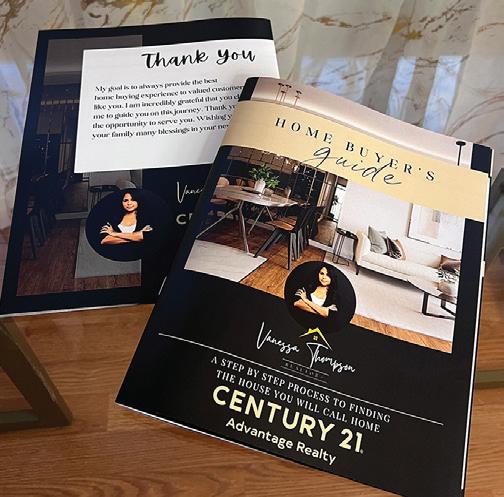
said. “I know I am going to make it because I don’t have a choice.”
You can connect with Vanessa on Facebook at “Vanessa Thompson Realtor,” or give her a call at (606) 416-8370. n

“I just have this unwaivering belief in my own success.”
No matter how you pronounce them — pee-cans, puh-cahns, or however — one thing’s for certain: that almost buttery flavor of pecans pairs well in savory or sweet dishes alike. And they’re a nutrient dense option as a snack all by themselves. Try roasting them to bring out their flavor.
April is National Pecan Month so of course we couldn’t resist sharing a little bit about this versatile nut.
According to the National Pecan Shellers Association, there are more than 1,000 varieties of pecans which are often named based on where they’re grown.
The association advises storing pecans in an airtight container. Keeping them in the refrigerator or freezer will help prolong their shelf life.
A one-ounce serving of pecans (a little less than a fourth of a cup) contains just under 200 calories. Pecans are a good source of fiber and antioxidants. They contain micronutrients such as vitamin E, manganese, zinc, copper, and magnesium, among others. Pecans are also rich in B vitamins. Overall, they contain 19 vitamins and minerals.
Pecans are considered a hearthealthy nut due to their high content of monounsaturated fats.


If you love candied pecans and want to whip up a quick batch on the stove top, here’s an easy recipe.
2 cups pecan halves
6 tablespoons brown sugar
1-½ teaspoons ground cinnamon
½ teaspoon fine sea salt
½ teaspoon vanilla extract
1-½ tablespoons water
2 teaspoons orange zest, optional Pinch cayenne pepper, optional
Line a baking sheet with parchment paper. In a skillet over medium heat, add all the ingredients except for the nuts. Cook, stirring often, until the mixture starts to bubble. Stir in the pecans until they are coated in the mixture. Continue stirring and cooking until the pecans become candiedlooking and start to smell nutty and look shiny. Be careful not to burn the nuts. Transfer the candied pecans to the baking sheet and spread them in a single layer to cool. They can be stored in an airtight container for up to a week or in the refrigerator for longer. n
Find out more at ilovepecans.org/april-nationalpecan-month/
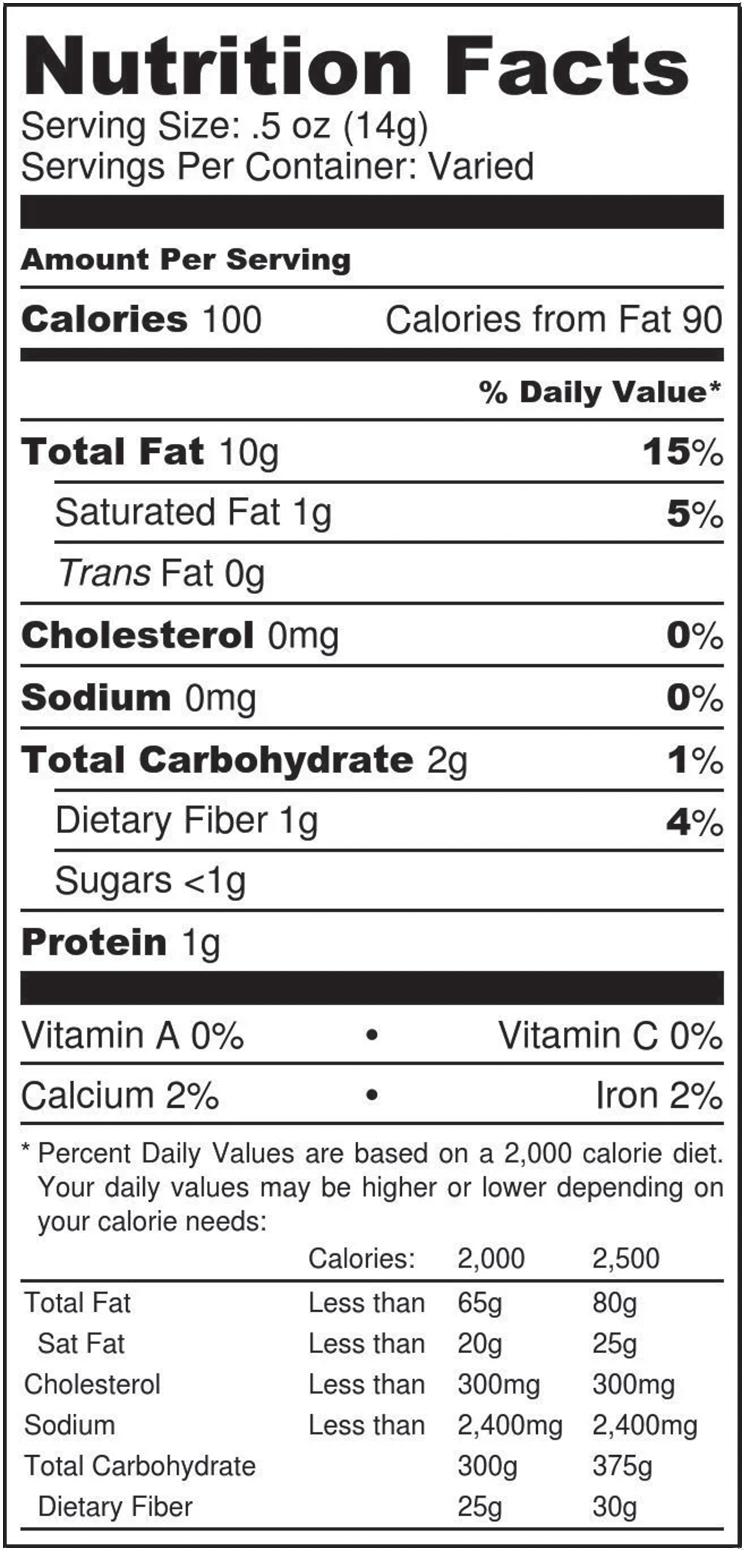
By Lake Cumberland District Health Department
Where we live impacts our communities’ health. We can make our communities healthier, stronger, and safer. We are excited to announce that the 2025 National Public Health Week theme is “It Starts Here.”
Public Health starts with each of us making a difference in our homes and communities.
Your local health department’s mission is to promote and protect the health of all who live, work, learn, and play throughout the Lake Cumberland District. Public health professionals work to prevent problems from happening or recurring by implementing educational programs, recommending policies, promoting healthy lifestyles, assuring a safe environment, and detecting and controlling infectious diseases. In contrast, clinical professionals like doctors and nurse practitioners focus primarily on treating
individuals after they become sick or injured.
As we celebrate the 30th National Public Health Week, April 7-13, we remember that public health isn’t for just a single person but for you, your friends, your family, and everyone in your community. Public health works at every level to ensure that everyone has the opportunity to thrive.
Public health works at every level to ensure that everyone has the opportunity to thrive.
One of the key ideas highlighted during NPHW is the importance of public health initiatives as investments in the future.
Funding for prevention programs, disease surveillance, vaccination campaigns, and mental health services saves lives and reduces healthcare costs over time. Rather than waiting for health crises to arise, public health departments advocate for a proactive approach to health that focuses on prevention, early intervention, and education.

Moreover, public health advocacy calls for better mental health resources. With growing awareness of mental health issues, NPHW shines a spotlight on the need for greater mental health care integration and access, addressing stigma, and ensuring everyone can seek the support they need.
Over the past 30 years, significant strides have been made in public health, including a reduction in the number of smokers in the United States from 25.5% in 1994 to 11.4% today. The number of deaths due to HIV/AIDS in 1994 was 49,095, but today, that number has dropped significantly. Childhood mortality, which was at a rate of 13.8 deaths per 1,000 live births in 1994, has now fallen to 5.4 deaths per 1,000 live births due to vaccines and better healthcare access and nutrition.
In the spirit of Public Health Week, it is important to note that Kentucky is one of the unhealthiest states in our nation. A few healthy lifestyle choices could change this. First, eating normally proportioned helpings of nutritious foods, including at least five fruits and vegetables a day, can lower weight and reduce heart disease and diabetes. Second, exercising about 30 minutes per day can lower blood pressure. Third, avoiding the use of tobacco products can reduce several types of cancer. Finally, getting your needed preventive screenings can detect diseases early and greatly increase your chances for positive health outcomes, while receiving your recommended vaccinations can prevent acquiring disease in the first place. n Visit LCDHD.org for more information.
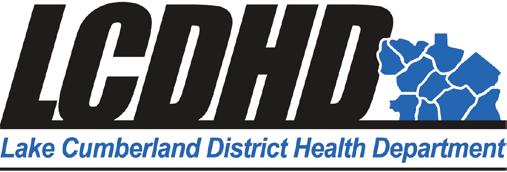
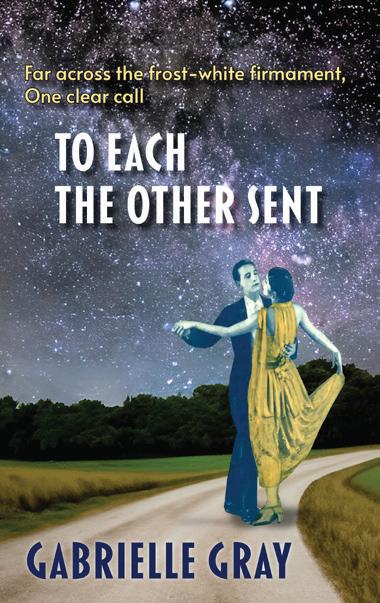
Spanning three postCivil War generations in American history, this historical fiction tells a love story through the ages.
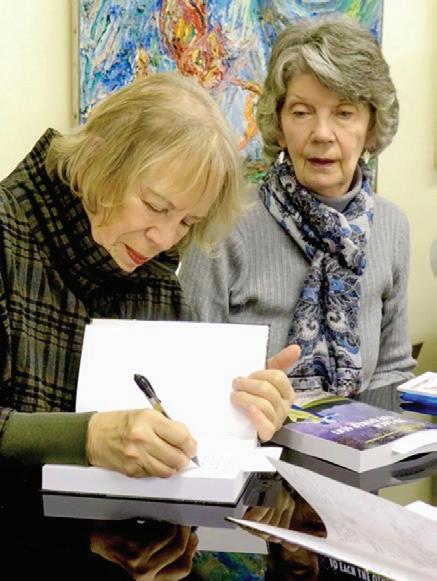
If you missed getting your copy at the book signing, you can order on Amazon:
Madison Silmon regularly attends our Latch with Love meetings. She is a firsttime mother to a beautiful daughter, Vivian who goes by Ivy. As a member of our group she is enjoying her breastfeeding journey with Ivy. As soon as you meet Madison, it’s so easy be at ease around her. She is friendly and welcoming to other ladies and nurses in our group. She is genuine and open regarding her past struggles with addiction. Madison also sees Latch with Love as an additional support system in this new phase of her life. She says she is “happy to be sober, because I am able to breastfeed without worrying about passing anything harmful to my baby.”
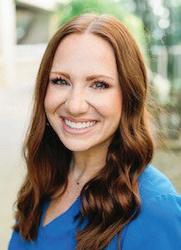
By Ashley D. Hoseclaw, MSN, RN, IBCLC
Perinatal Educator, Lake Cumberland Regional Hospital
Ashley.Hoseclaw@LPNT.net
Madison reports being exposed to alcohol and drugs at the age of 18. Once she went away to college, her substance use/abuse intensified and by the time she was 23, she was drinking throughout her waking hours. If she wasn’t drinking, she was sleeping. She was struggling with her mental

Silmon and her daughter Ivy.
health, having been in and out of behavioral health units for inpatient treatment. She had in her words “lost everything, my home, my friends, anything positive in my life.” She was using to essentially selfmedicate, not realizing that the drug and alcohol abuse was the root of the problem. The first time Madison got sober was following an inpatient stay on the behavioral health unit. Her mother took her to rehab as soon as she was discharged.
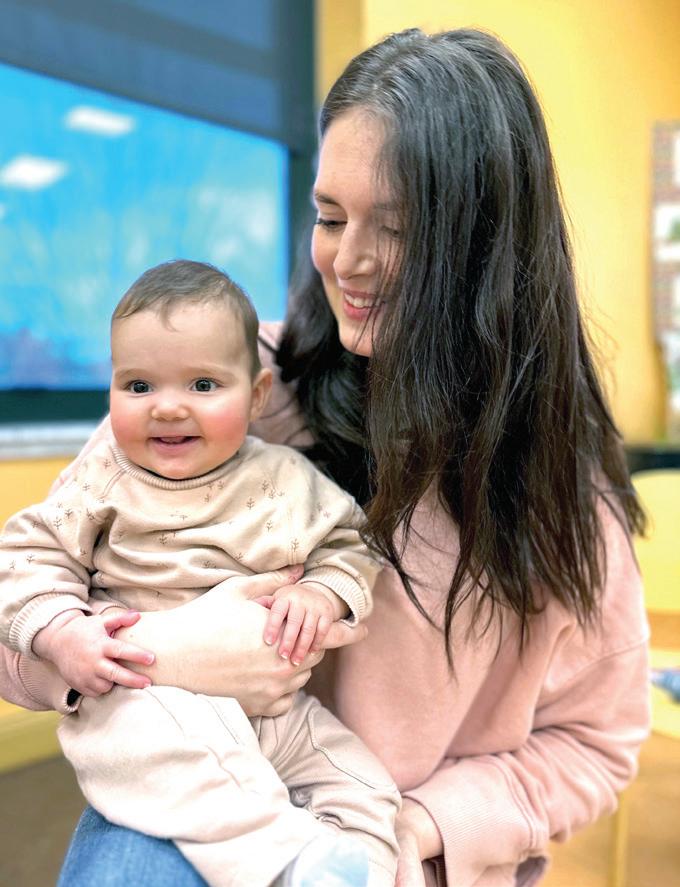
She states she didn’t have a desire to make any changes in her life, but she cooperated and went. She stayed clean for four months, when she found herself falling back into old patterns with old friends. That relapse lasted for two months, and again she lost what she had so recently rebuilt. She felt
April 20-26
Thank you to all who volunteer!



















































































like there was no way to get out of this pattern. She knew she had to commit to a complete lifestyle change to be successful. She has now been sober since April 28, 2023.
According to Madison, she knew that she had to change everything in order to stay clean — people, places, and things. She was humble enough to acknowledge that she didn’t feel strong enough to make those changes without help. She chose to check into residential treatment to be immersed in a supportive community for her first month of sobriety. Once that milestone was achieved, she chose to continue with long-term treatment, and she worked to reestablish herself in accordance with her new way of living. She describes this period as one where her eyes were opened spiritually. She says she has an amazing support system and is very selective on who she allows in her life.
does remind her that she has someone else to live for and that it is a daily choice to stay clean knowing “…my addiction will kill me if I go back.”
“ I get to show up to the place that loved me back to life and do the same thing for so many men and women.”
Madison Silmon
Now Madison has built a life for herself that has set her up for success. She continues to participate in therapy and even works as a peer support specialist through Lake Cumberland Recovery. She serves the ladies in residential treatment by leading group sessions that educate the clients on addiction and strategies to overcome it. She also assists with intake assessments for both men and women entering the facility. Madison says “I get to show up to the place that loved me back to life and do the same thing for so many men and women. I couldn’t be more grateful.”
Madison says, “I will always be in recovery and identify as an alcoholic and addict because I know I’m powerless against drugs and alcohol. I will never be able to drink or use any substance without it taking over my life again.” She is even cautious with commonly used overthe-counter medications.
When she discovered she was pregnant with Ivy, she was six months sober. Not planning to become a mom at that time, she had been using birth control. She says this further shows how her life is on God’s timeline and not hers. She anticipated that once she became a mother, her desire to drink and use drugs would disappear, but it did not. Motherhood
When asked what she would say to a woman that finds herself in the throes of addiction, Madison wants them to know they are not defined by their disease. They are more than their past experiences and it is never too late for redemption. Treatment and therapy can help people overcome the guilt and shame of the past instead of continuing to turn to drugs and alcohol. What a beautiful example of a fulfilling life, on the other side of addiction.
Thank you, Madison for your transparency and willingness to share your story to give hope to others. We are so proud of you. n
Please watch the Lake Cumberland Regional Hospital Facebook page for upcoming Latch with Love support group meeting dates and locations. Register for prenatal classes at Lakecumberlandhospital.com.

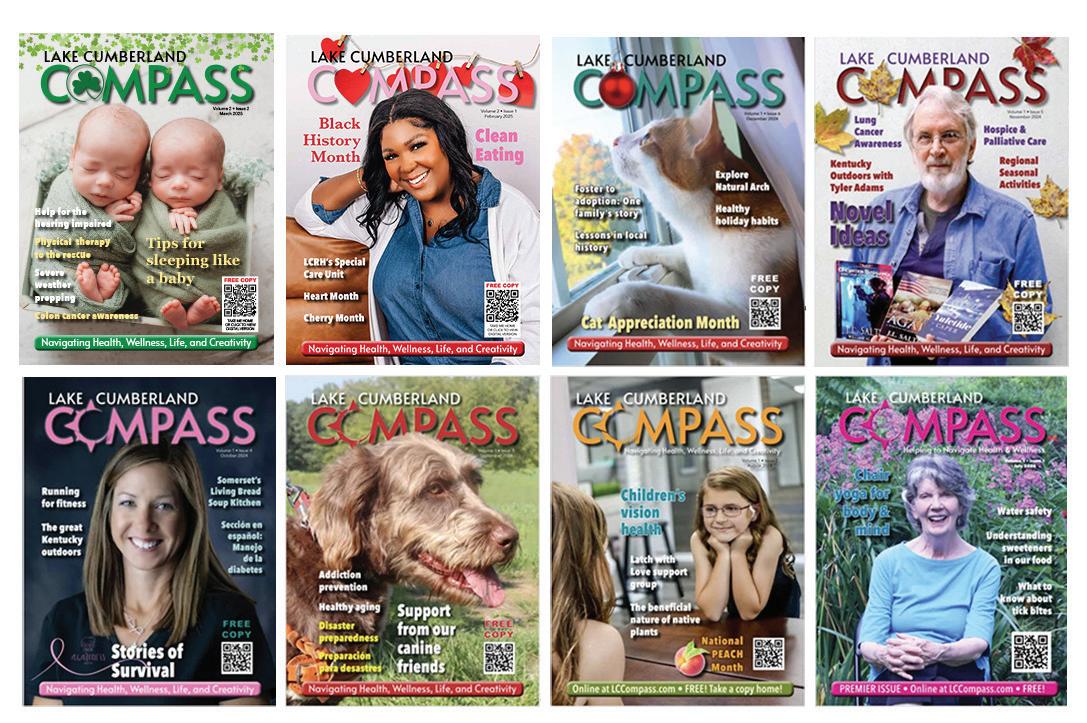


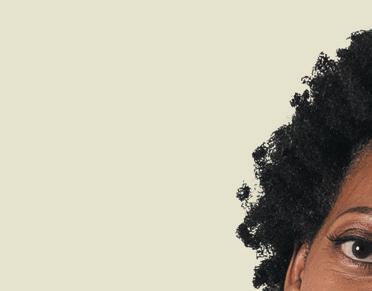

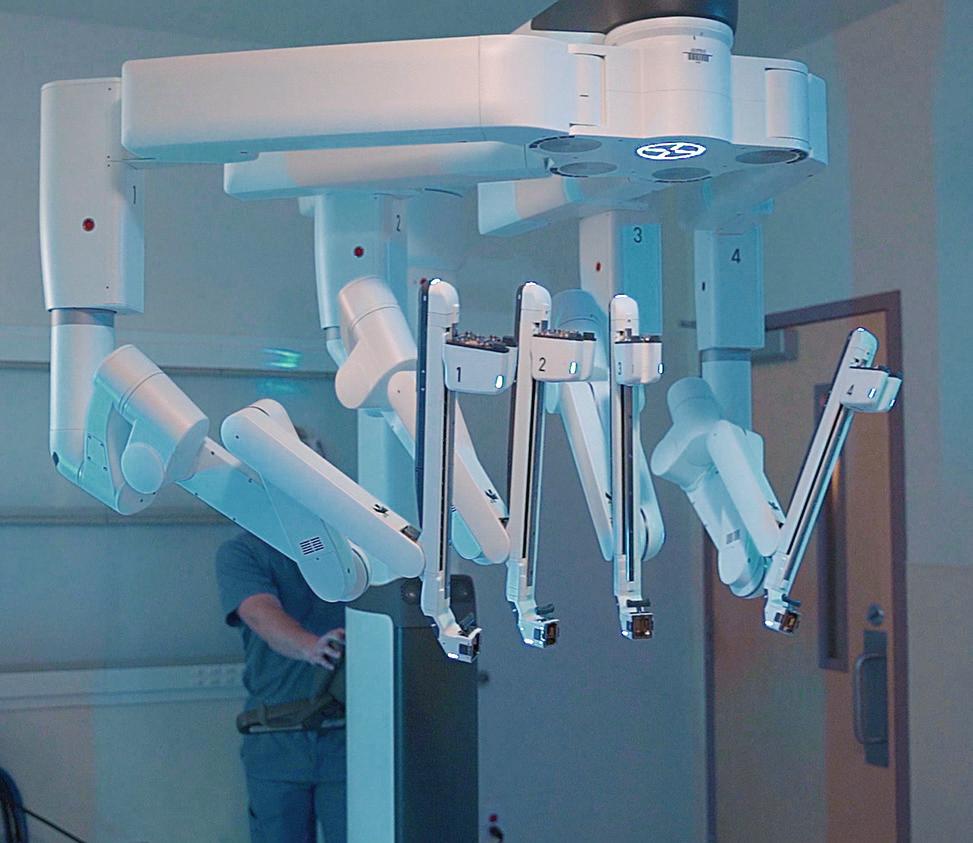

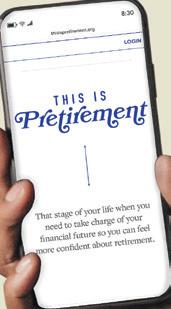





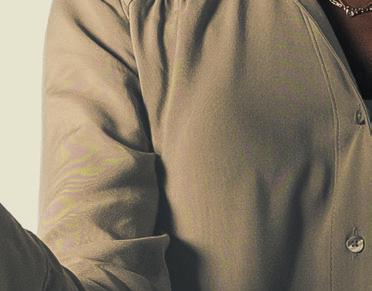

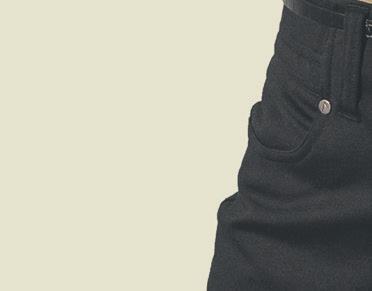
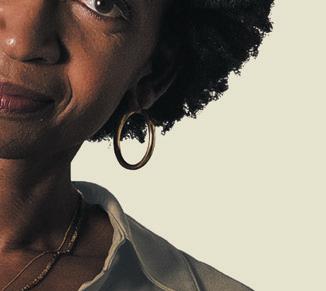


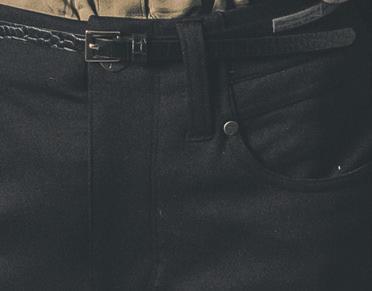


Lake Cumberland Regional Hospital (LCRH) is expanding its surgical program with the addition of a third da Vinci® Surgical System, increasing access to minimally invasive procedures for patients in the region. This investment reflects LCRH’s ongoing commitment to its patients, community, and highly skilled surgeons.
The da Vinci® Surgical System enables surgeons to perform complex procedures with greater precision, flexibility, and control. By offering robotic-assisted surgery, LCRH enhances patient experiences with shorter recovery times, reduced surgical risks, and improved overall efficiency.
“We continue to invest in advanced technology, our patients, and our exceptional surgical team to ensure that the highest quality care is available close to home,” said Carolyn Sparks, Lake Cumberland Regional Hospital CEO. “With three
da Vinci® robots now in operation, we can better meet the growing demand for minimally invasive procedures and provide even more patients with skilled surgical care.”
The additional robotic system will support a variety of specialties, including general surgery, bariatrics, gynecology, and colorectal surgery. Patients who qualify for roboticassisted procedures often experience less pain, fewer complications, and a faster return to daily activities compared to traditional surgery.
Lake Cumberland Regional Hospital remains dedicated to advancing healthcare in the community, providing innovative treatment options, and supporting the surgeons and team members who make these procedures possible.n
For more information about roboticassisted surgery at LCRH, visit LakeCumberlandHospital.com/robot.

Lake Cumberland Alzheimer’s Caregiver Support Group is for caregivers and other interested people. They meet the second Monday of each month at 6:00 p.m. at Cumberland Church of Christ in Somerset.
u u u
Pulaski Alzheimer’s Disease Respite is located at 393 South Main Street, Somerset, 606-679-9310.
u u u
Pulaski County Senior Center 255 South Maple Street, Somerset, 606-679-0590.
u u u
AppalReD Legal Aid Somerset Office: 108 College Street, Somerset, 606-679-7313 or 800-866-7313.
u u u
Lake Cumberland Area Development District Counties Served: Adair, Casey, Clinton, Cumberland, Green, McCreary, Pulaski, Russell, Taylor and Wayne. lcadd.org/. 2384 Lakeway Drive, Russell Springs, Toll Free: 1-800-264-7093.
u u u

Hospice Adult Grief Support Meetings are free and open to the public. Somerset bereavement group meets year-round, on the last Tuesday of the month, from 5:30 - 7:00 p.m. at 100 Parkview Drive in Somerset. Call for children’s bereavement services: 800-937-9596. Check website for more information: hospicelc.org/.
u u u
Friend for Life Cancer Support Network provides one-to-one peer support for cancer patients and their family members at no cost, assisting individuals diagnosed with cancer and their loved ones as they navigate the path through diagnosis,
treatment, recovery, and survival by pairing them with a trained survivor of a similar experience so they can face cancer with someone who’s been there. www.friend4life.org or 502-893-0643.
u u u

The Kentucky Safe Aging Coalition works with partners to provide fall prevention resources and support, as well as sharing updates on best practices. For more information, please call Roy at 859-562-1657 or rtapp2@ uky.edu. For more information, visit: safekentucky.org.
u u u

Lake Cumberland District Health Department provides help and resources for a wealth of health and wellness and safety topics. Find a list of community resources at lcdhd.org/ resources.
u u u
Lake Cumberland District Ombudsman (Long Term Care)
Serving Adair, Casey, Clinton, Cumberland, Green, McCreary, Pulaski, Russell, Taylor, and Wayne counties. Advocates for residents of nursing homes, personal care homes and family care homes, improving care and encouraging positive change at all levels. Lake Cumberland ADD, P.O. Box 1570, Russell Springs, Toll Free: 1-800-264-7093.
u u u
LCRH “Latch with Love” offers free, drop-in, informal breastfeeding support, including professional lactation care, providing breastfeeding families
an opportunity for social connection as they navigate challenges and celebrate successes together. Sponsored by LCRH. Check website for info: lakecumberlandhospital.com/ events.
u u u
Breastfeeding and Prenatal Classes — Helping families welcome new babies with free classes including getting ready for delivery, basics of newborn care, infant bathing, safety and wellness, how to prepare for breastfeeding, and more. Hosted by Ashley Hoseclaw, MSN, RN, IBCLC, Perinatal Educator and Lactation Consultant. Please register in advance. For information, call 606-678-3176 or visit lakecumberlandhospital.com/ women-and-children.
u u u
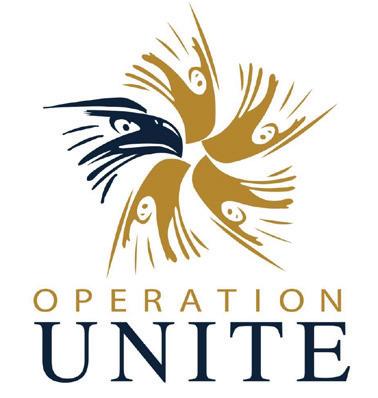
Operation UNITE - Lake Cumberland Chapter, serves Pulaski, Wayne, and McCreary counties. Coalition meetings are always open to the public. The Pulaski Coalition meets the second Monday of each month at 1 p.m. in the conference room at Lake Cumberland Health Department in Somerset.
u u u
There is a breast cancer support group that meets once a month, every third Thursday, usually at Mellow Mushroom in Somerset. The Facebook page to request joining is: Breast Cancer and Beyond Support Group - Somerset. Admins are Jeri English and Gayle Allen.
u u u
Living Bread Soup Kitchen serves free hot meals to-go to. Meals can be picked up every Tuesday and Thursday at 3 p.m. at 321 South Maple Street in Somerset. Located directly behind the Pulaski County Library. Every third Tuesday of the month they provide a free food box filled with grocery items which vary each month. Contact Gina Gaylor at 606-379-6270 for questions.
u u u
First United Methodist Church, located at 99 South Central, Somerset, offers Wednesday Night Fellowship and Supper each week. Doors open at 4 p.m. Indoor dining starts at 5 p.m. and carryout is available at 5:45 p.m. or after everyone has been served. Food items are courtesy of God’s Food Pantry and meals are prepared by volunteers from the church and community.
u u u
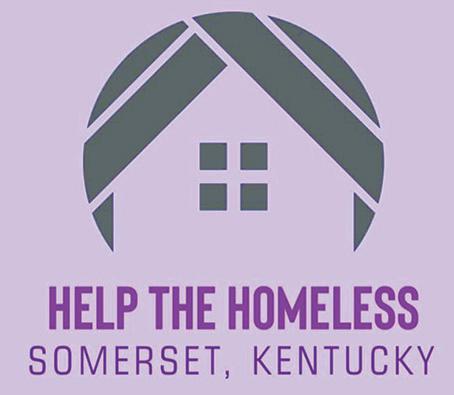
Help the Homeless is a volunteer-run and community-funded grassroots 501c(3) organization addressing homelessness in the Lake Cumberland region. You can help by volunteering or donating items. 408 Bogle St., Somerset, 606-875-3893.
u u u
Lake Cumberland Community Action Agency, committed to improving the health and welfare of the less fortunate through a variety of services and community partnerships to ensure self-sufficiency and economic stability. 100 N. Main Street, Somerset, Suite 302, 606-679-6203, lc-caa.org/.
We do our best to verify accuracy of the content on this page and appreciate your input in helping to make corrections and additions. We include as much as space allows, giving priority to resources that are free and open to the public. Our deadline is the eighth of each month. Please include a small blurb about the organization, who it serves, how to contact you, where you are located, etc. Please be brief. Email info@LCCompass.com.
